14600K vs 13600K: putting Intel's best mainstream CPUs to the test
We put Intel's mainstream 14600K vs 13600K chips to the test
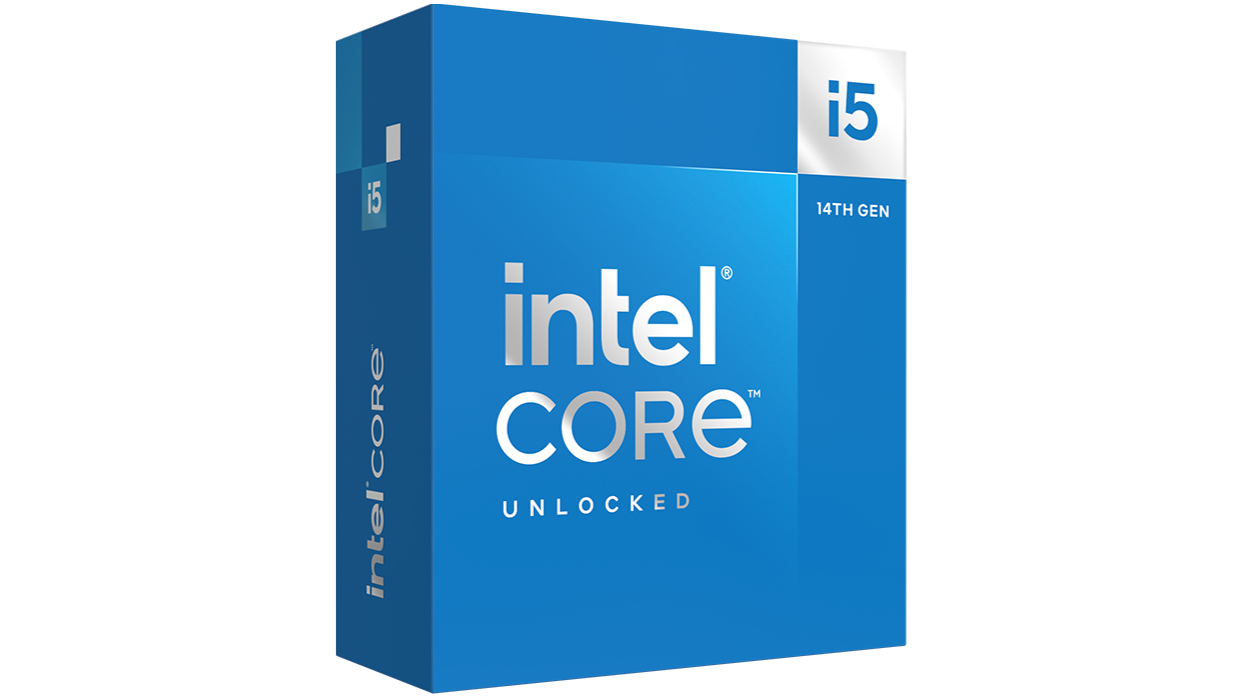
Efficiency Cores: 6
Performance Cores: 8
Threads: 20
Base Clock (E-Cores): 2.6GHz
Base Clock (P-Cores): 3.5GHz
Boost Clock (E-Cores): 4.0GHz
Boost Clock (P-Cores): 5.3GHz
Total Cache: 44MB
TDP: 125W
The Intel Core i5-14600K is sure to be a popular choice among mainstream consumers looking for solid performance without shelling out a fortune for performance they'll never use or even need, but is it really the best value for consumers?
Pros
- No price increase over previous generation
- Faster clock speeds
- Discrete WiFi 7 supported
Cons
- Barely any gen-on-gen improvement
- Runs much hotter

Efficiency Cores: 8
Performance Cores: 6
Threads: 20
Base Clock (E-Cores): 2.6 GHz
Base Clock (P-Cores): 3.5 GHz
Boost Clock (E-Cores): 3.9 GHz
Boost Clock (P-Cores): 5.1 GHz
Cache: 44MB Total
TDP: 125W
The Intel Core i5-13600K puts up some truly impressive numbers against the top CPUs competing chipmakers have to offer, making this the best processor for general users, though it is still more expensive and soaks up power like a sponge.
Pros
- Great overall performance
- Excellent price
- DDR4 and DDR5 support
Cons
- Power hungry
- Price increase over previous generation
With the launch of Intel Raptor Lake Refresh, a lot of PC builders, gamers, and just general PC users have a few new chips to choose from, and the Intel Core i5-14600K vs 13600K comparison is one of the most natural to start making right out of the gate.
The Intel Core i5-13600K is one of the best processors for mainstream users thanks to its solid performance and decent pricing, so now that the Intel Core i5-14600K has hit the market, many might be wondering if it's time for an upgrade.
Whether you want the latest and best Intel processor for general computing or you're hoping to snag a deal on a still great Core i5-13600K (but you're wondering what you might be missing out on if you buy the now last-gen chip), there are definitely a lot of things to consider.
Having reviewed both chips and done an extensive amount of testing over the last few weeks on both, I've got a very good sense of how each chip stacks up, what you should expect from each in terms of performance, and what kind of value each one represents.
So whether you're looking to buy or you're just curious about how the two chips measure up, I'm here to walk you through everything you need to know about the Core i5-14600K vs 13600K.
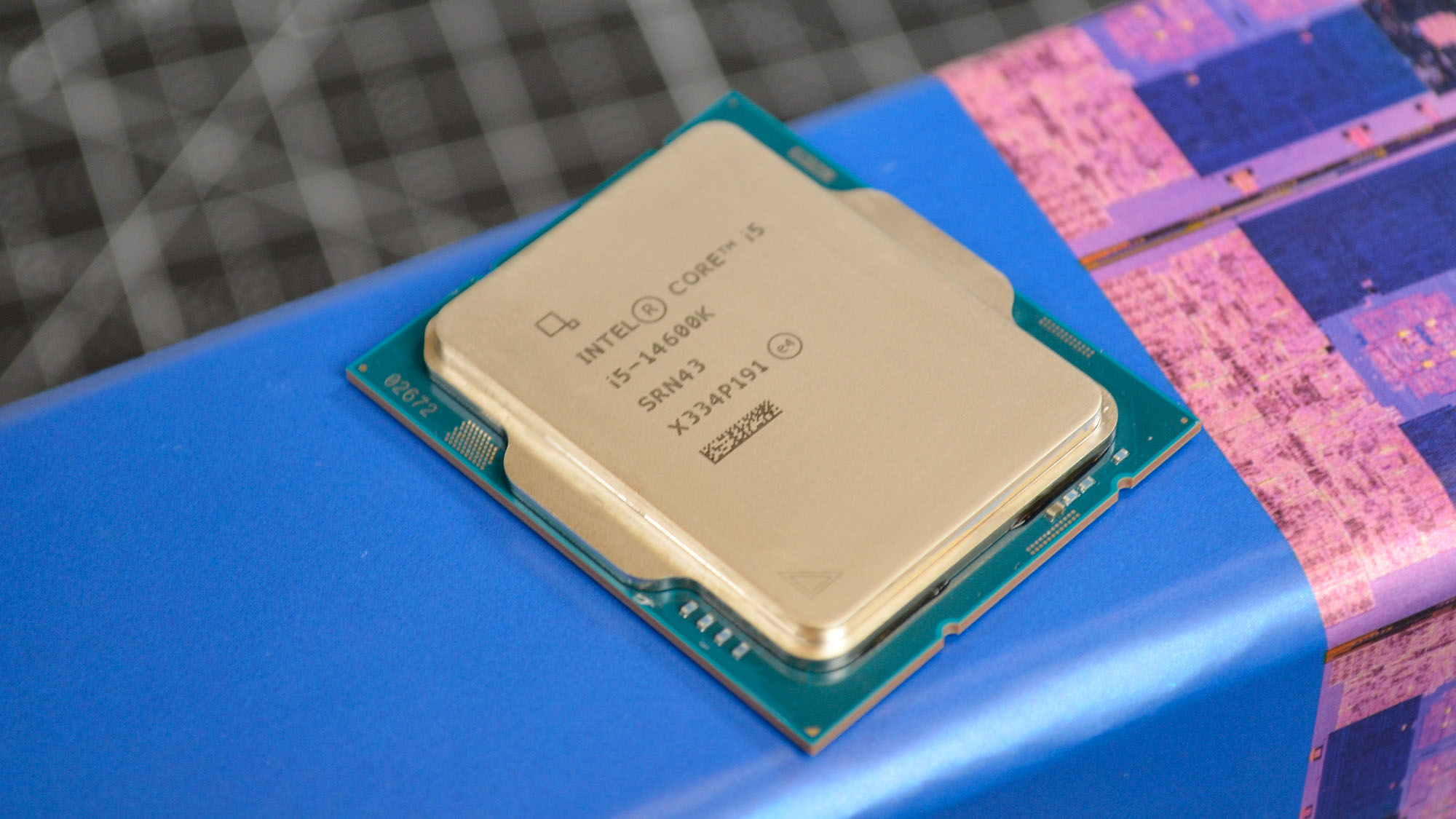
14600K vs 13600K: Price
In terms of price, there's not going to be much difference between the two chips initially. The US MSRP for the Core i5-14600K is $319 (about £255/AU$465), which is in the lower range of what Intel suggests for the Core i5-13600K, though many retailers price that chip higher. Or at least they have been.
Now, however, it's likely that the 14th-gen i5 will be getting the pricing premiums while the 13600K is likely to slowly see its price come down, so in the long term, the 13600K is probably the better bet in terms of price. As it stands today, though, it's more or less a tie.
Sign up for breaking news, reviews, opinion, top tech deals, and more.
- Winner: Tie (for now)
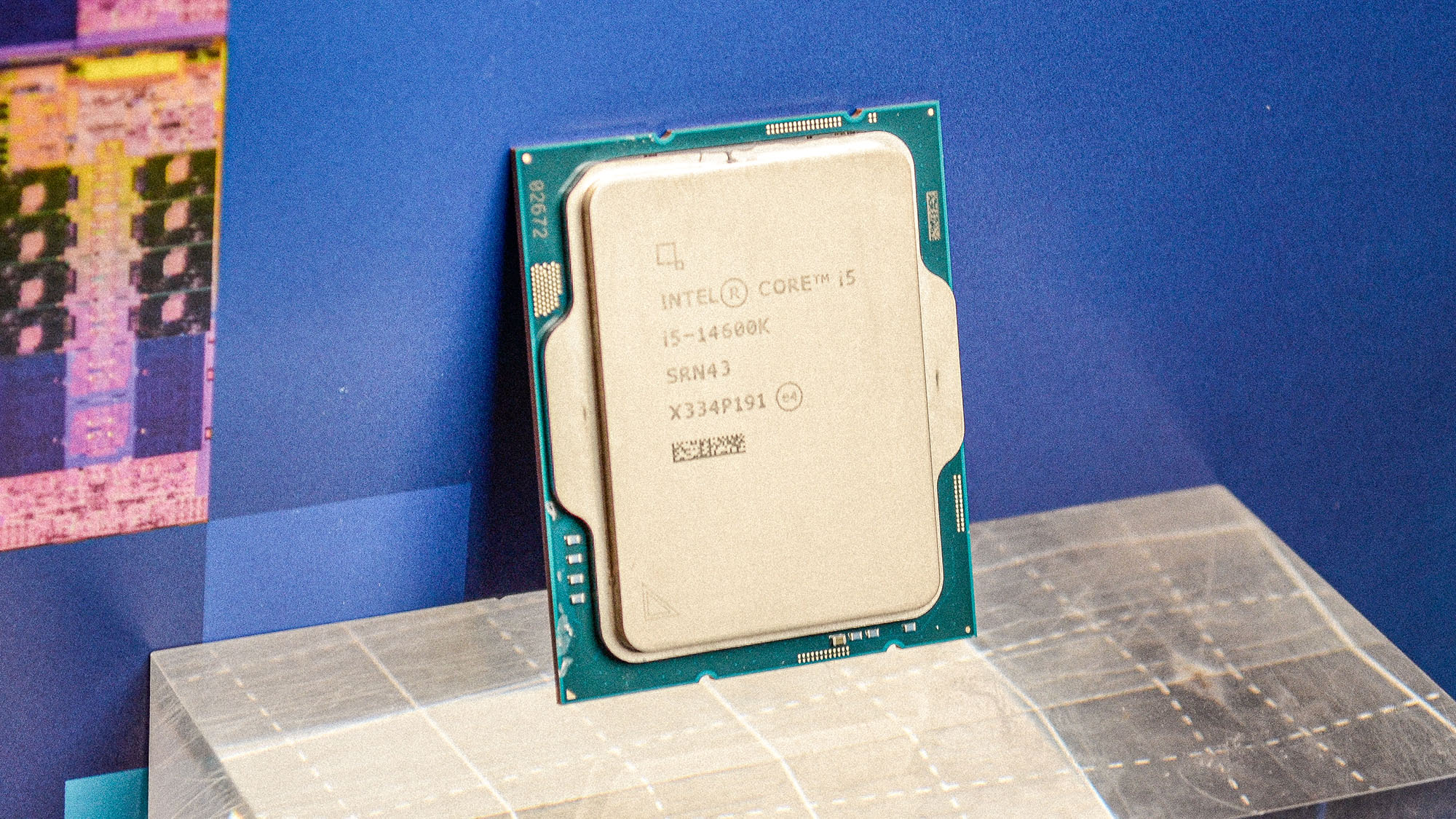
14600K vs 13600K: Specs & features
The Core i5 chips aren't especially known for their heavy-duty specs, and the 14600K and 13600K are no different. In fact, they're essentially the same, except for some modest turbo clock speed increases on the turbo clock speeds, 200MHz for the P-cores and 100MHz for the E-cores to get to the 14600K's 5.30GHz P-Core turbo clock and 4.0GHz for the E-core turbo clock.
Other than that, every Raptor Lake Refresh launch chip has support for discrete WiFi 7 and Thunderbolt 5, but both of those are a ways off, but it's something new for Raptor Lake Refresh, so it's good to have some futureproofing (Editor's Note: Intel has since reached out to correct its original announcement to add that the recently released 14th-gen desktop chips will not, in fact, support Thunderbolt 5).
| Header Cell - Column 0 | Intel Core i5-14600K | Intel Core i5-13600K |
|---|---|---|
| Performance Cores | 6 | 6 |
| Efficiency Cores | 8 | 8 |
| Threads | 20 | 20 |
| P-Core Base Clock | 3.50GHz | 3.50GHz |
| P-Core Boost Clock | 5.30GHz | 5.10GHz |
| E-Core Base Clock | 2.60GHz | 2.60GHz |
| E-Core Boost Clock | 4.00GHz | 3.90GHz |
| Cache | 44MB | 44MB |
| TDP | 125W | 125W |
| Motherboard Socket | LGA 1700 | LGA 1700 |
- Winner: Intel Core i5-14600K (barely)
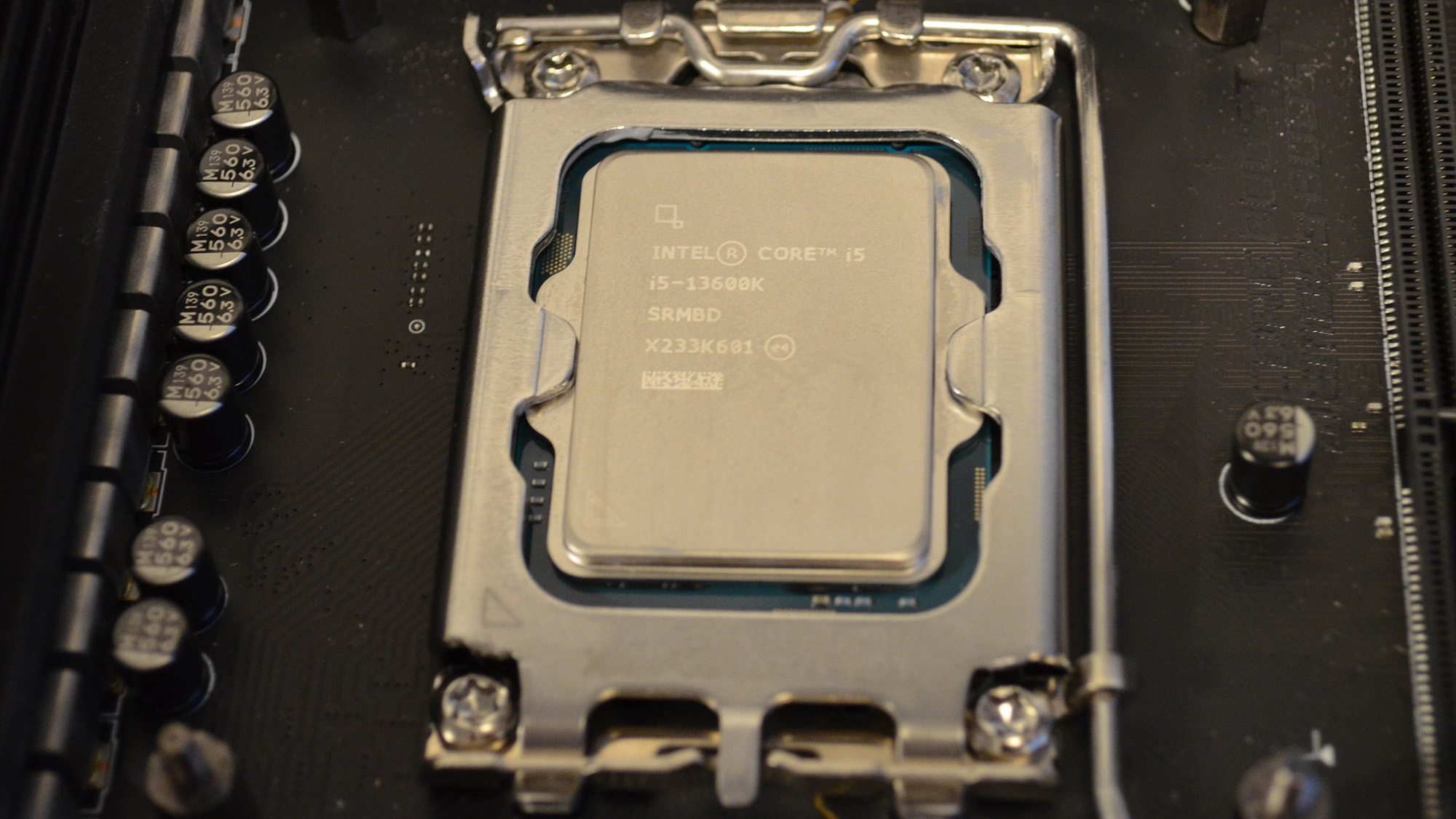
14600K vs 13600K: Performance
Honestly, the only way you're going to tell the difference between these two chips' performance is when you're looking at their benchmark scores, because otherwise their performance is so close that it's not a difference you'd experience in your day-to-day use.

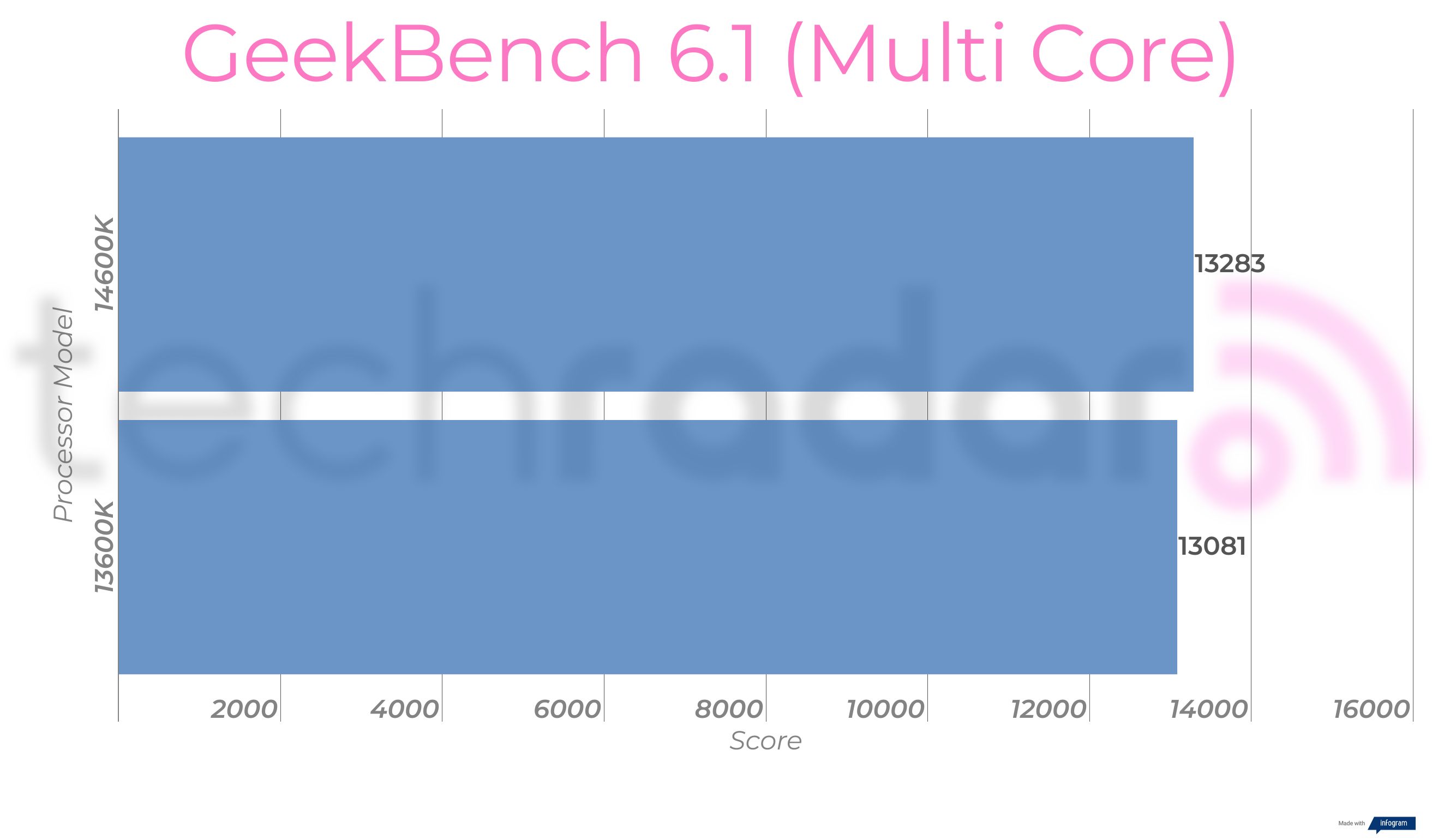
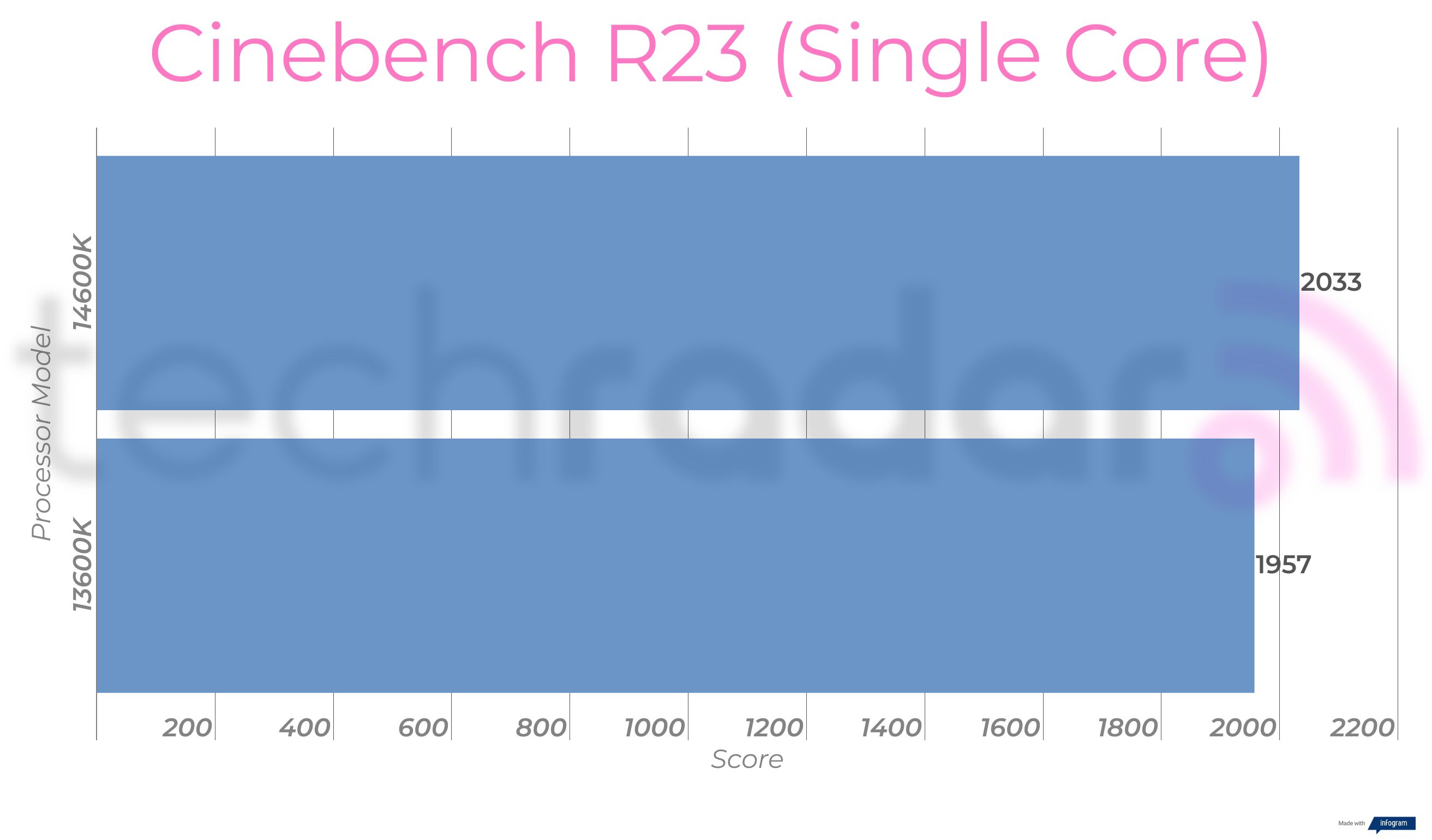
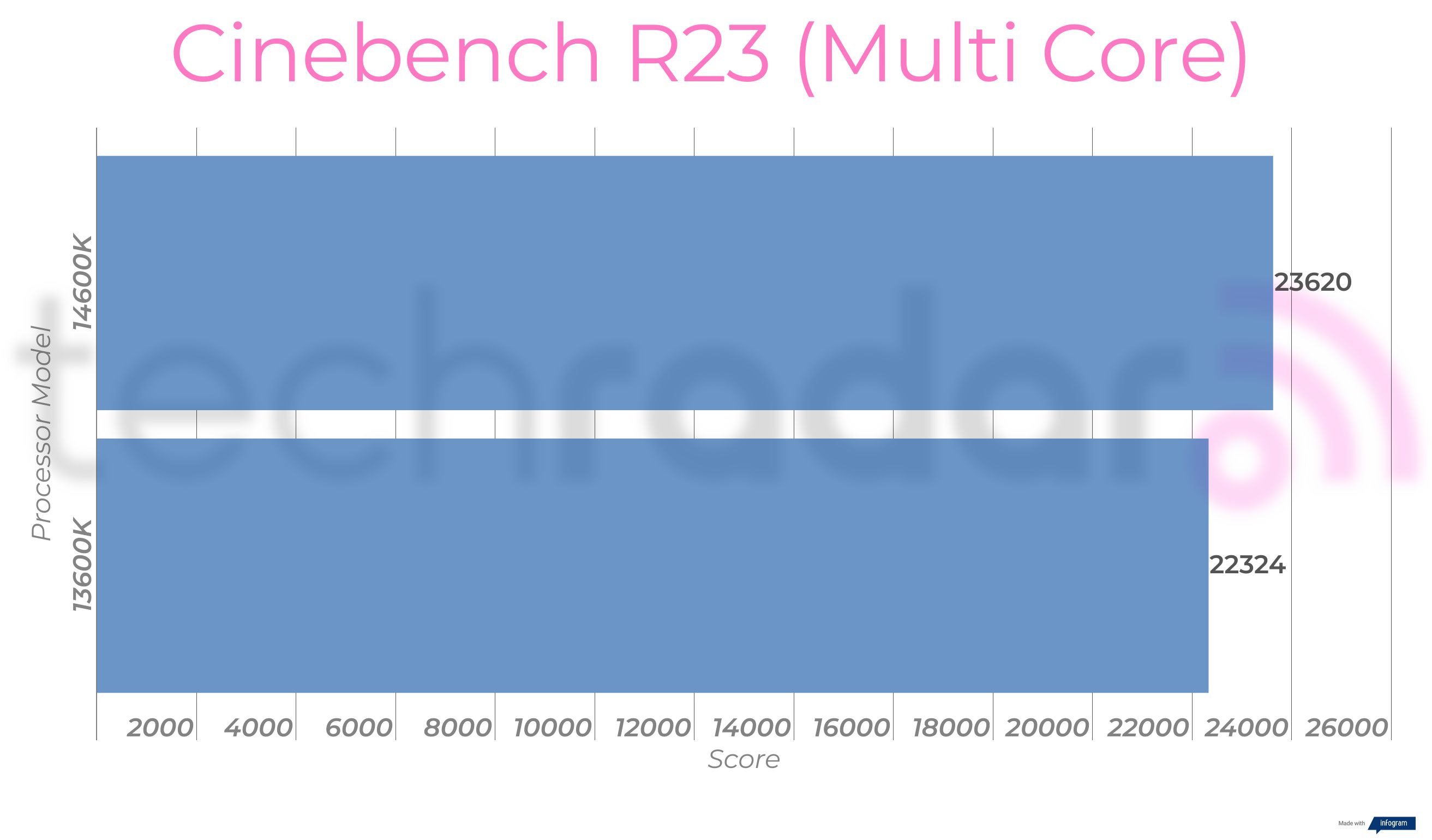
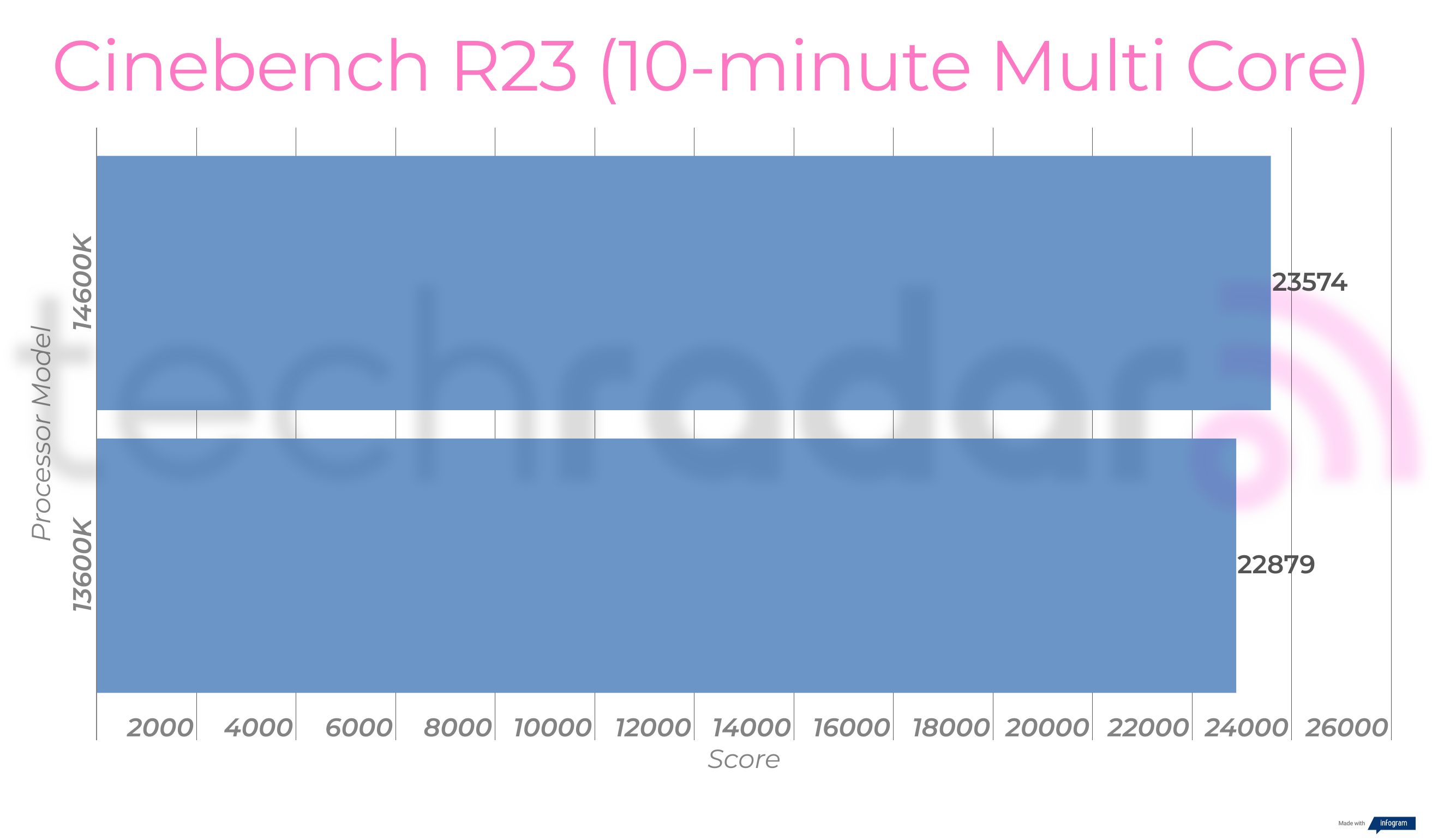
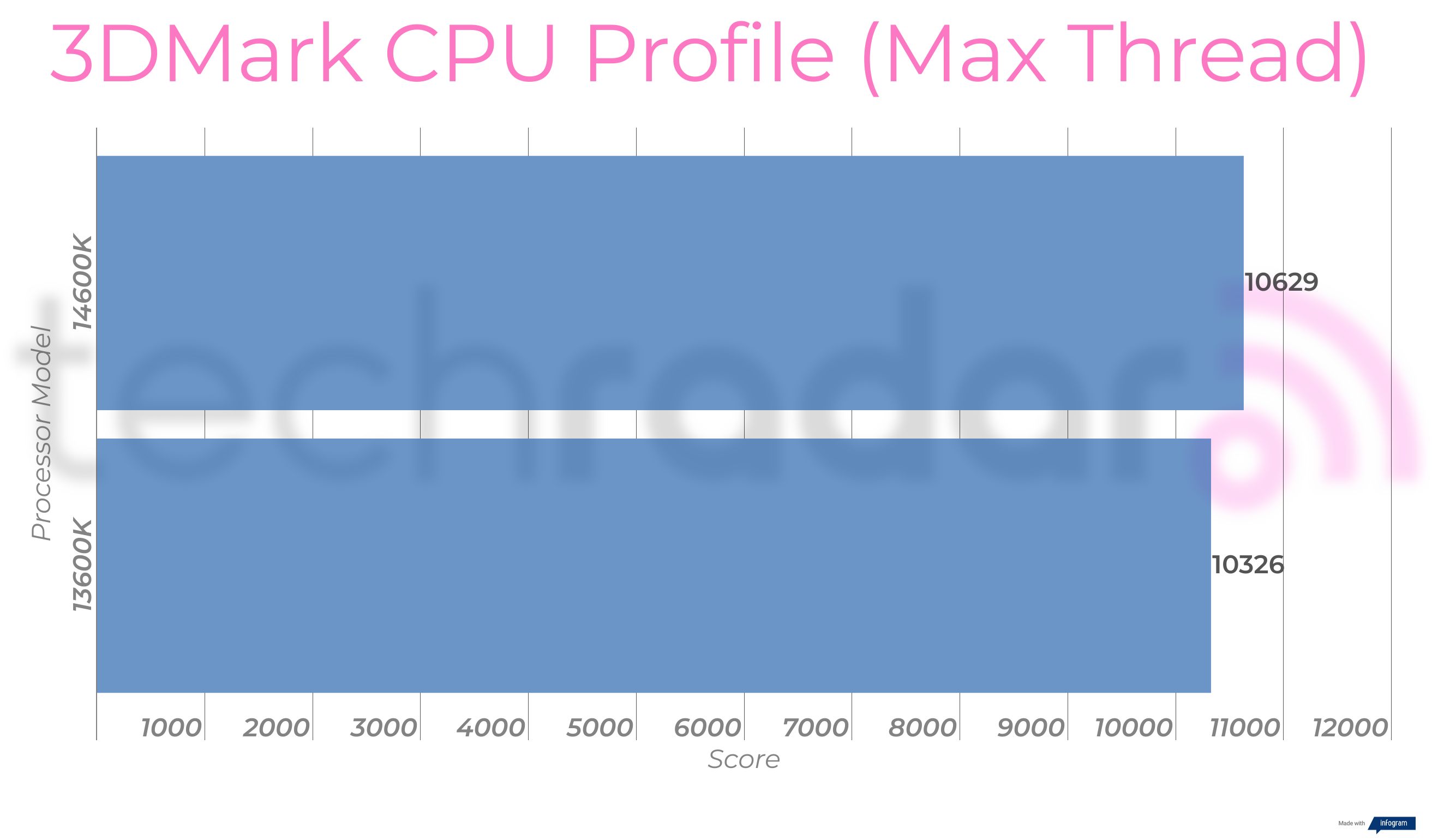
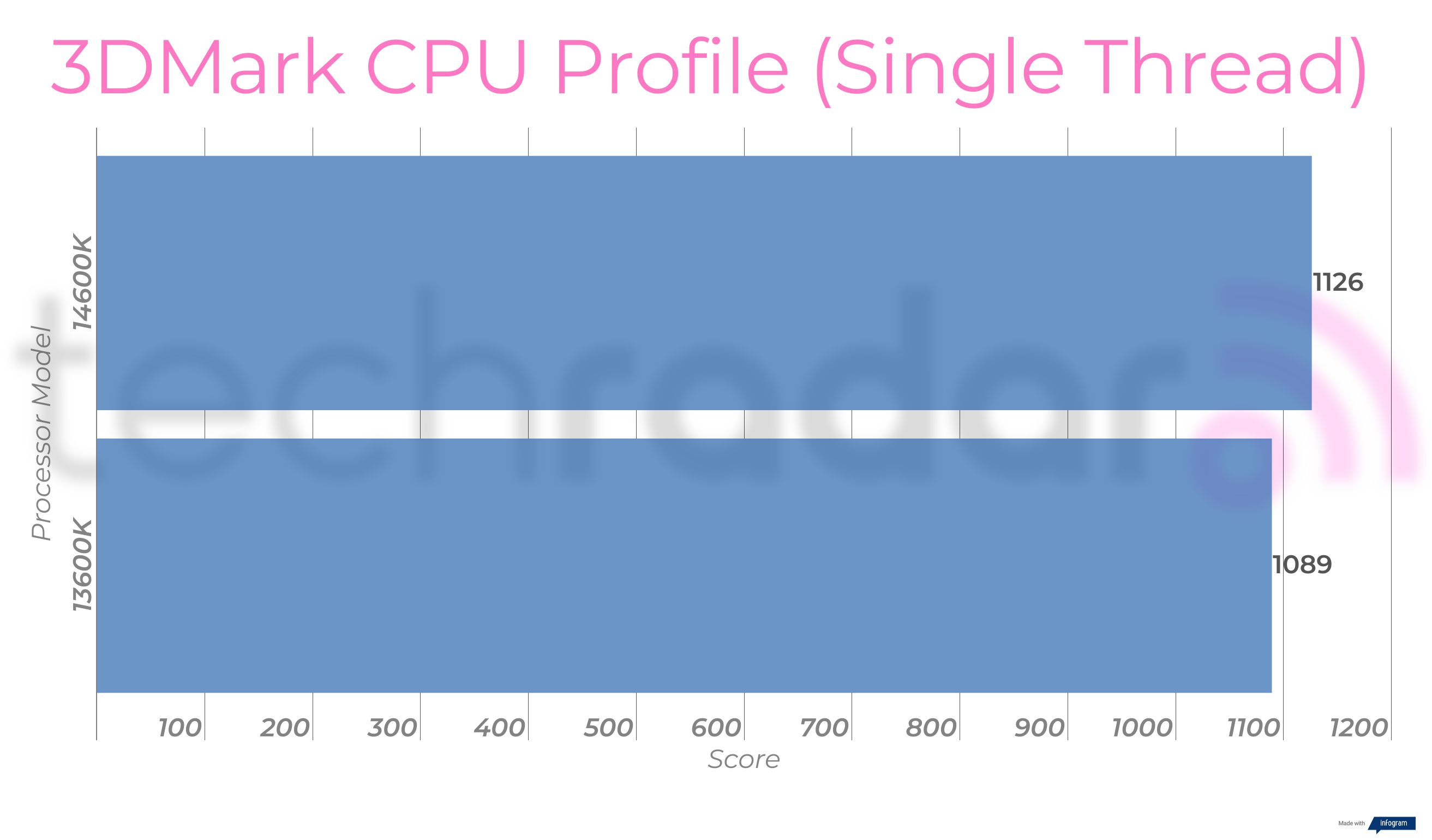
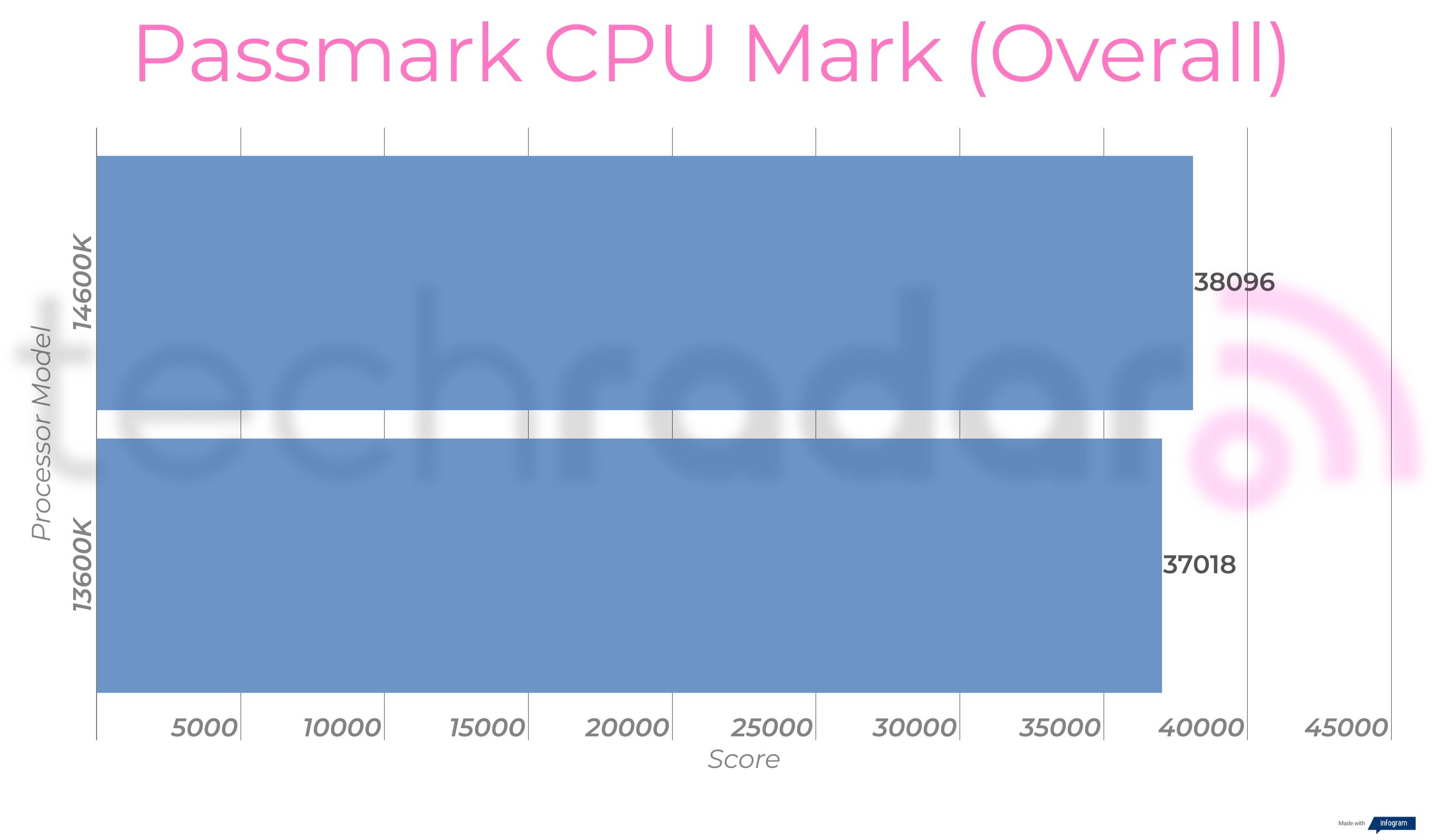
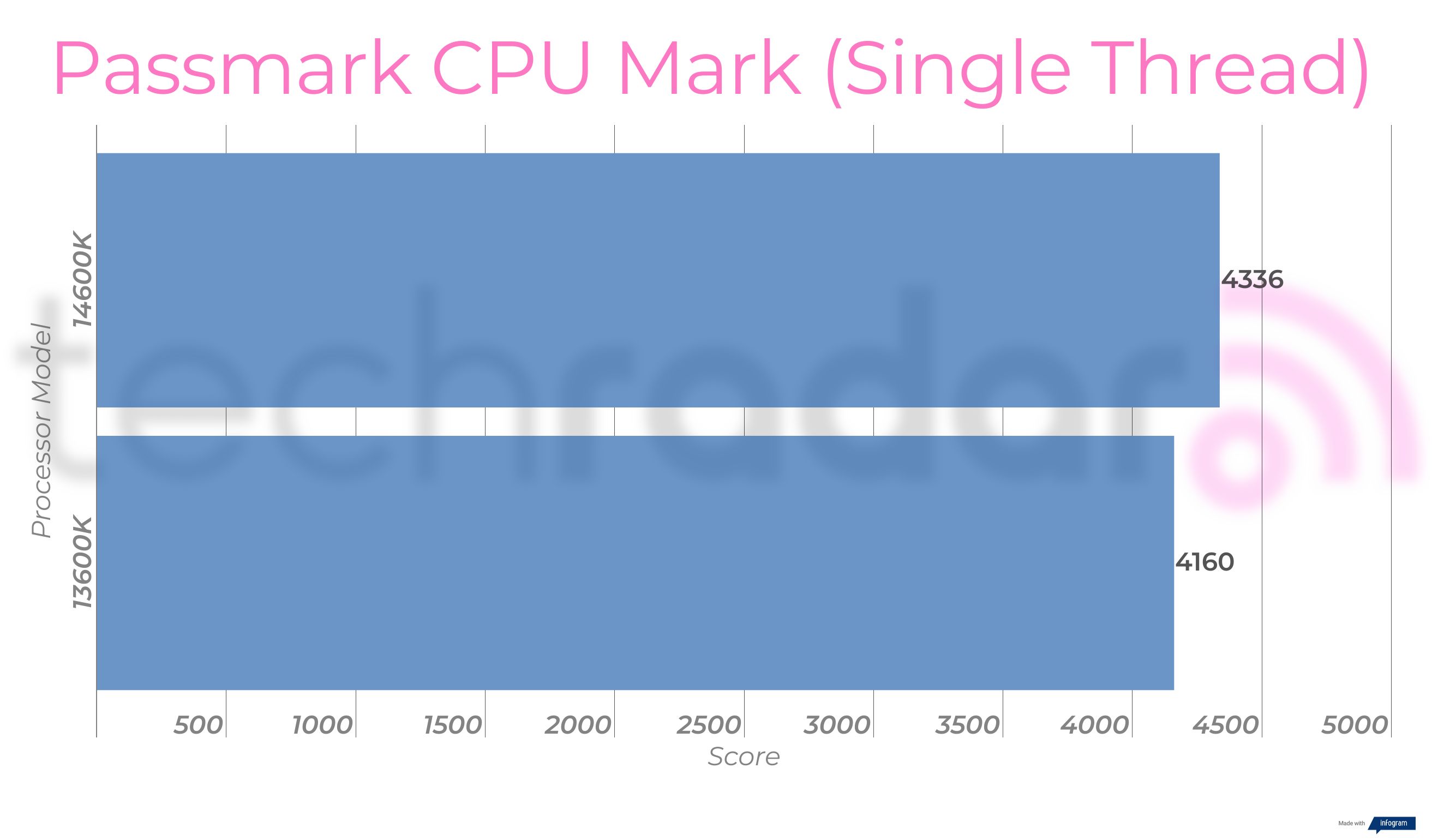
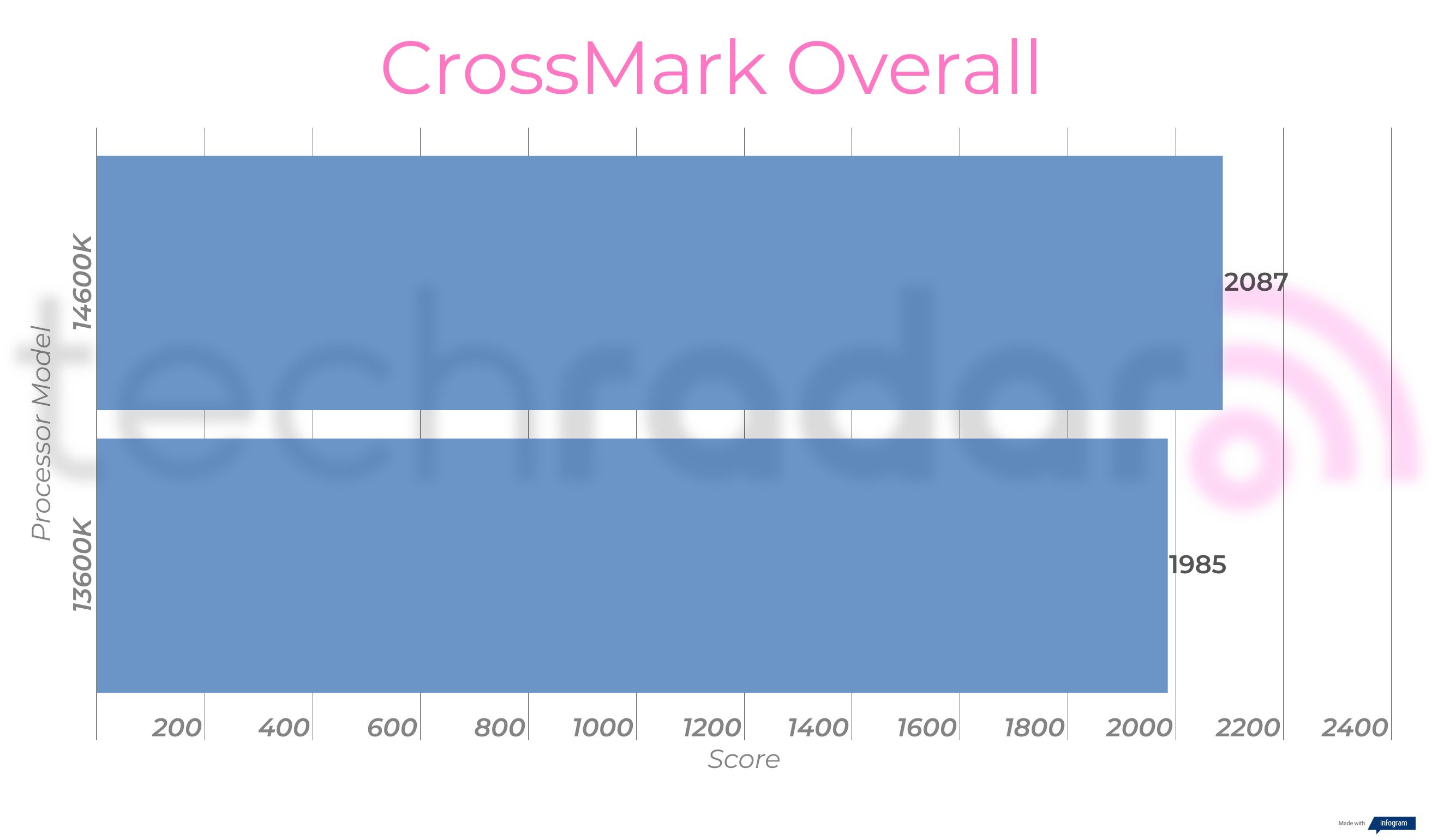
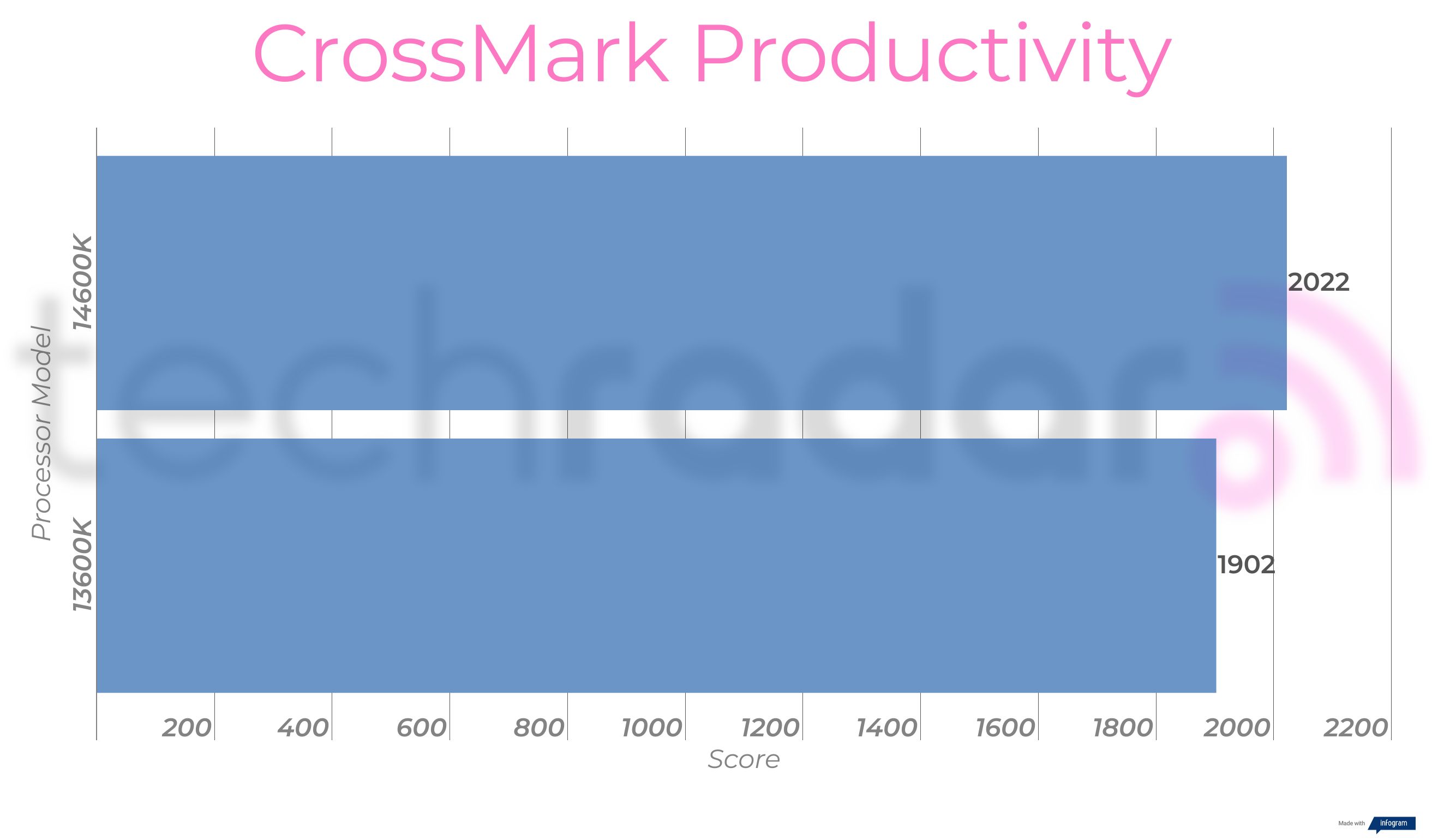
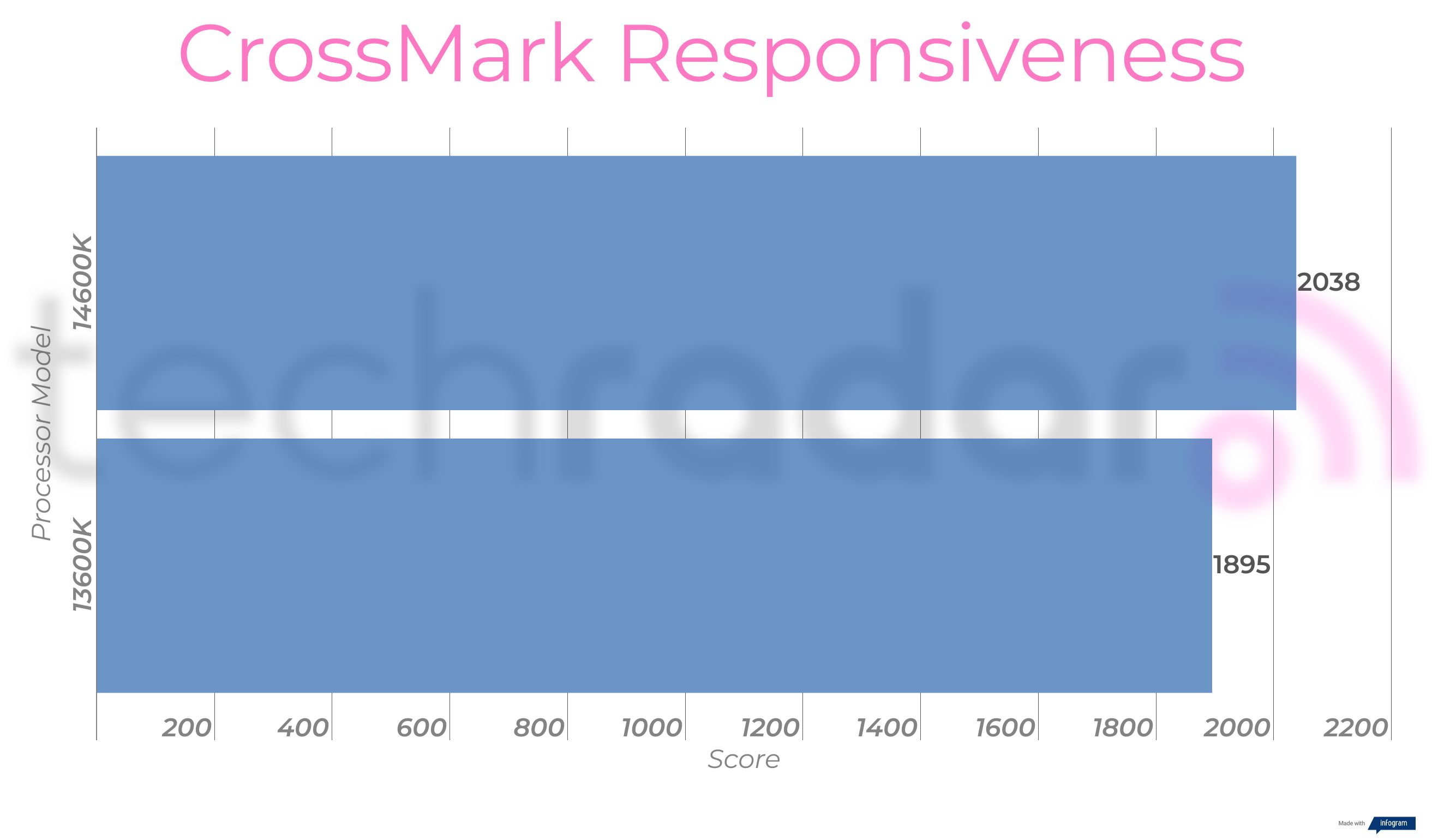
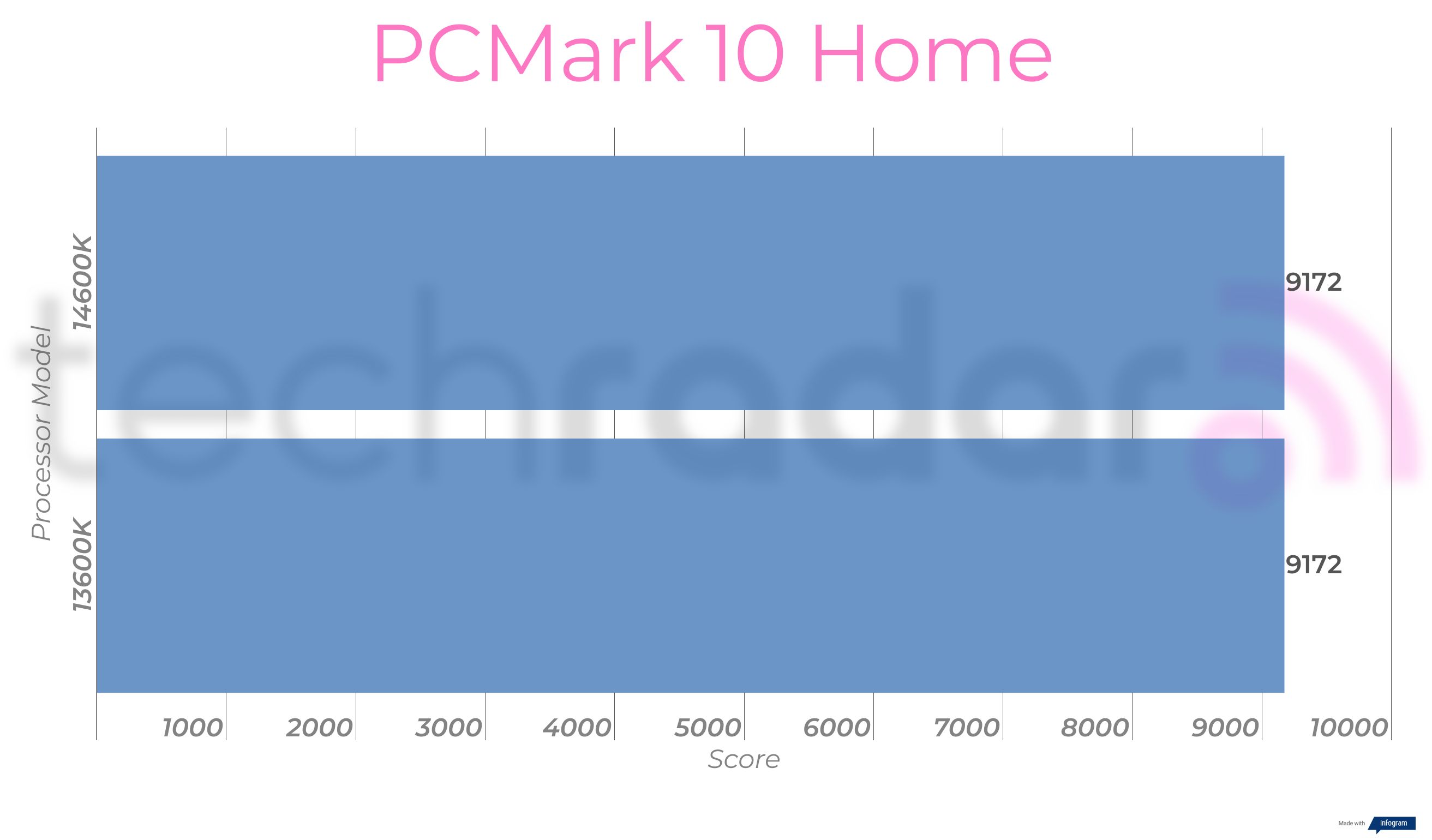
In synthetic benchmarks, the 14600K outperforms the 13600K by a fairly marginal amount, with an average single-core performance about 3.6% better than its predecessor. The 14600K's multi-core performance is about 3.3% better and its productivity performance is about 3.1% better.
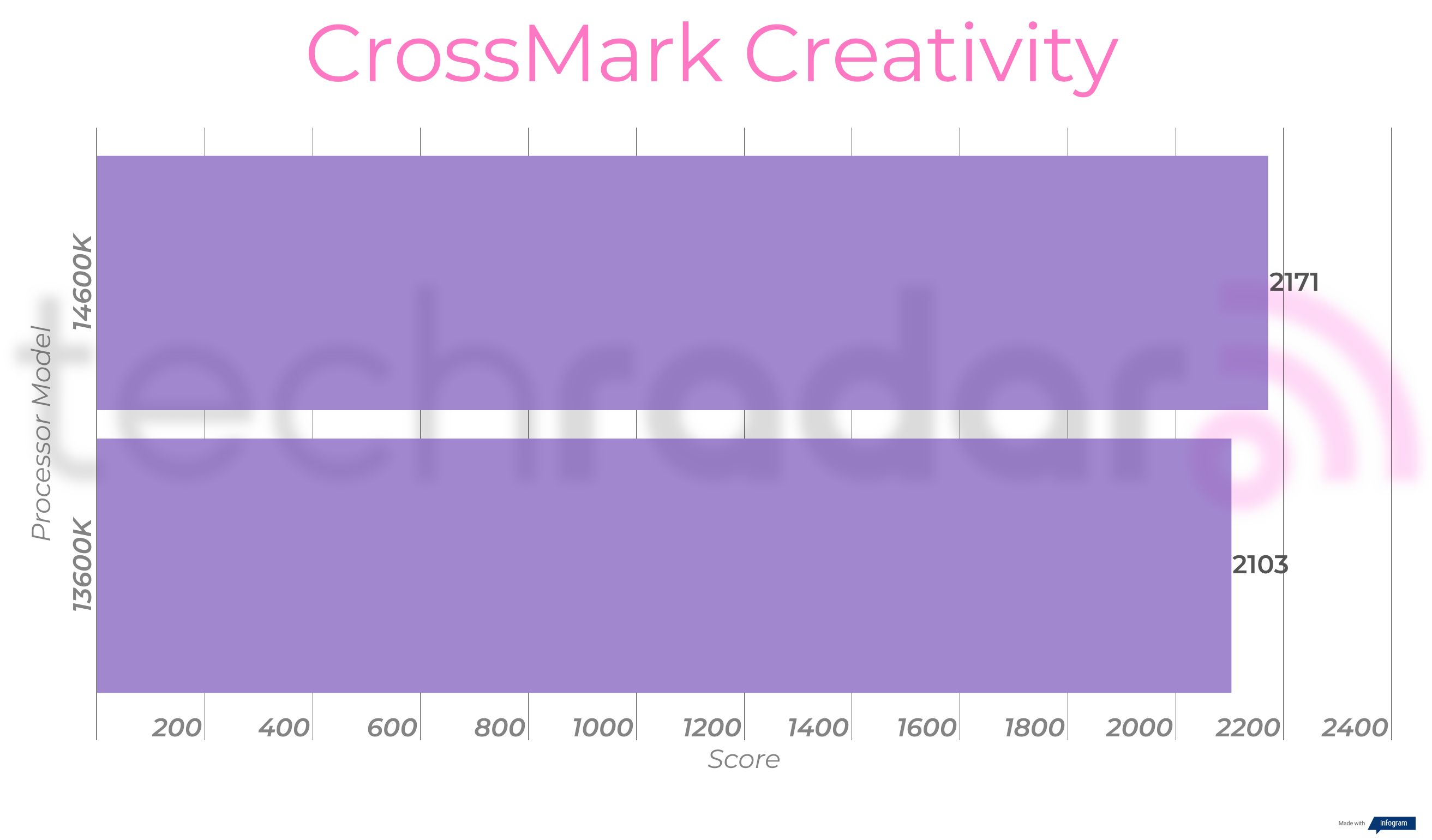
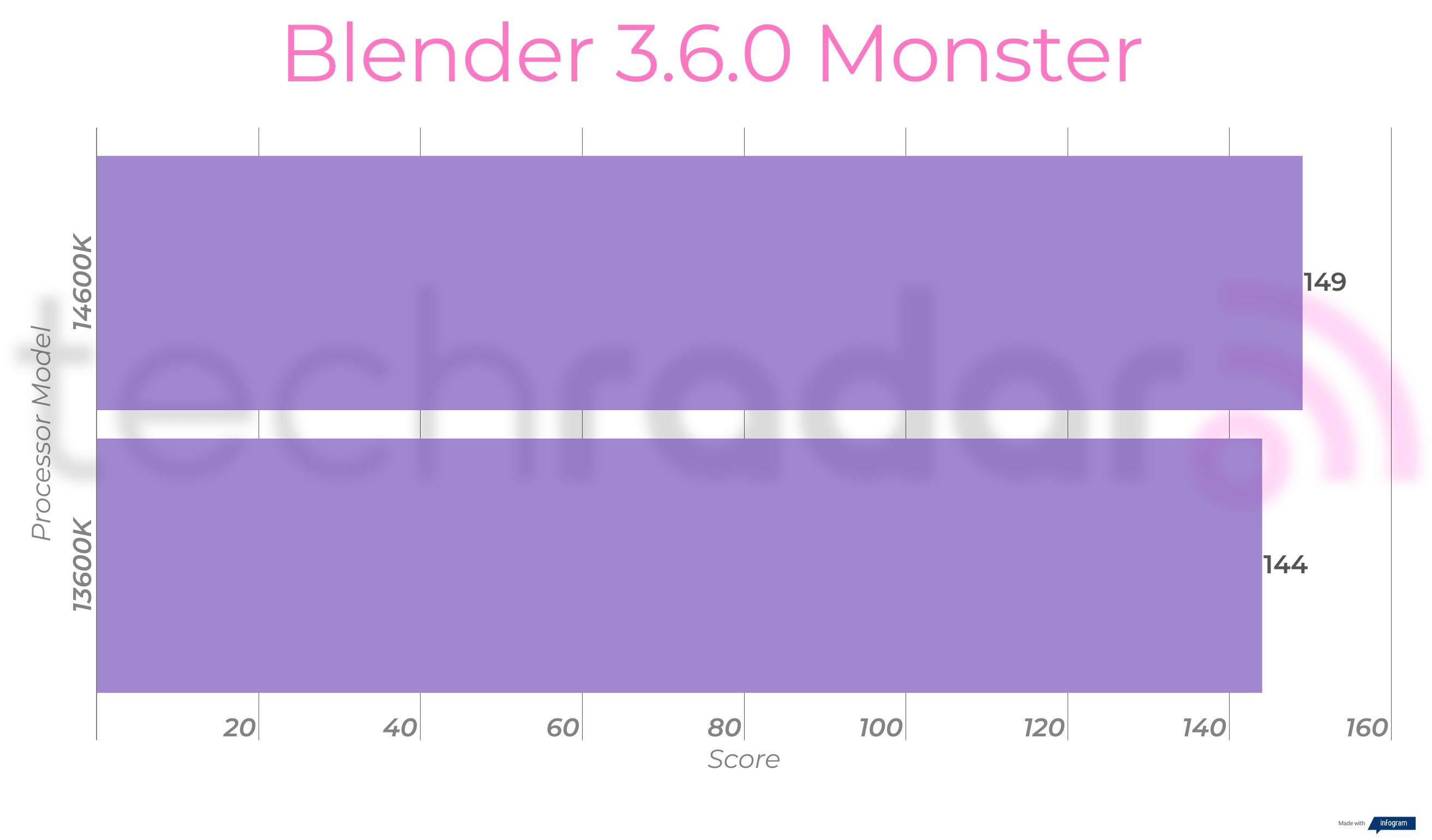
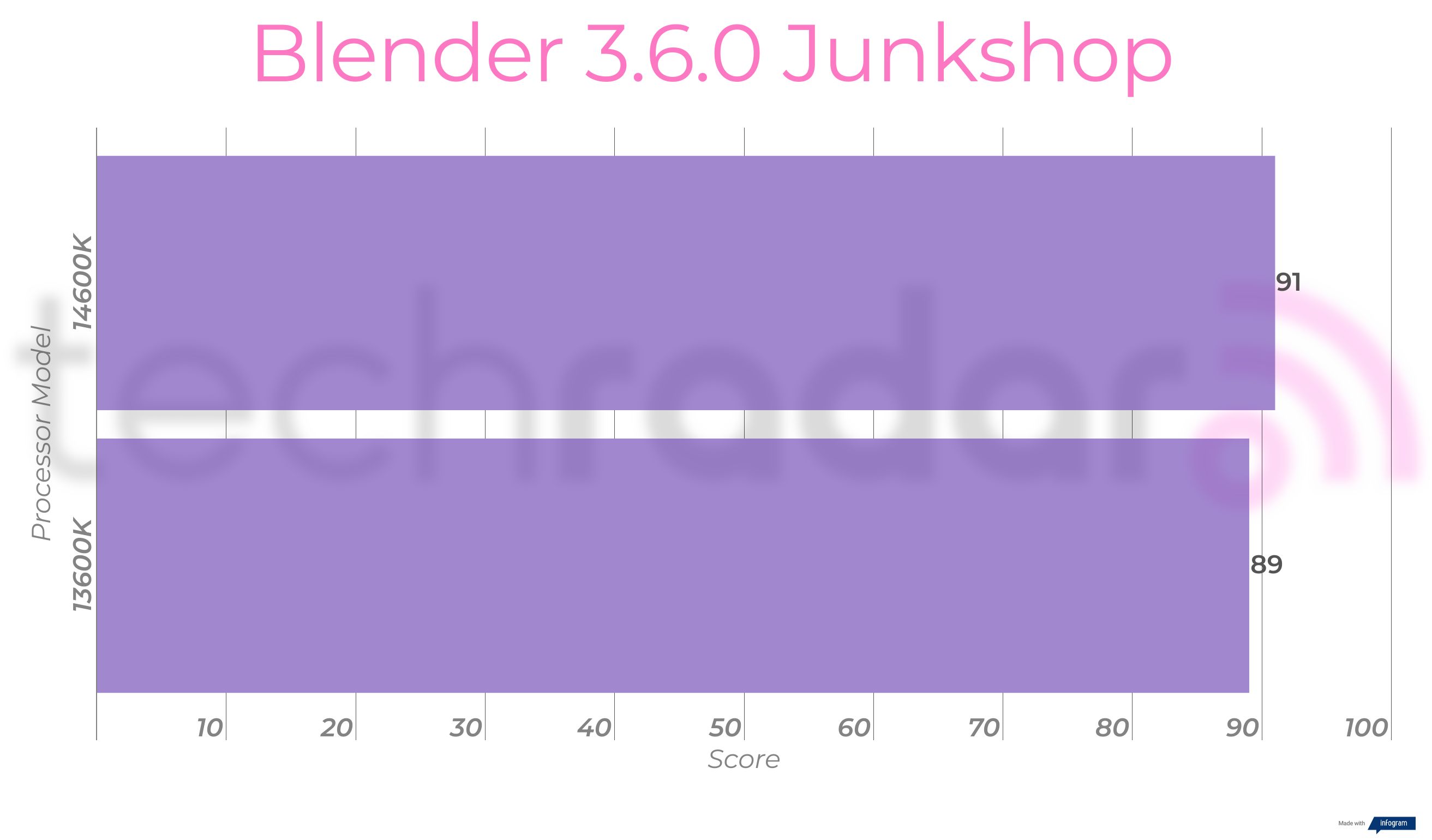
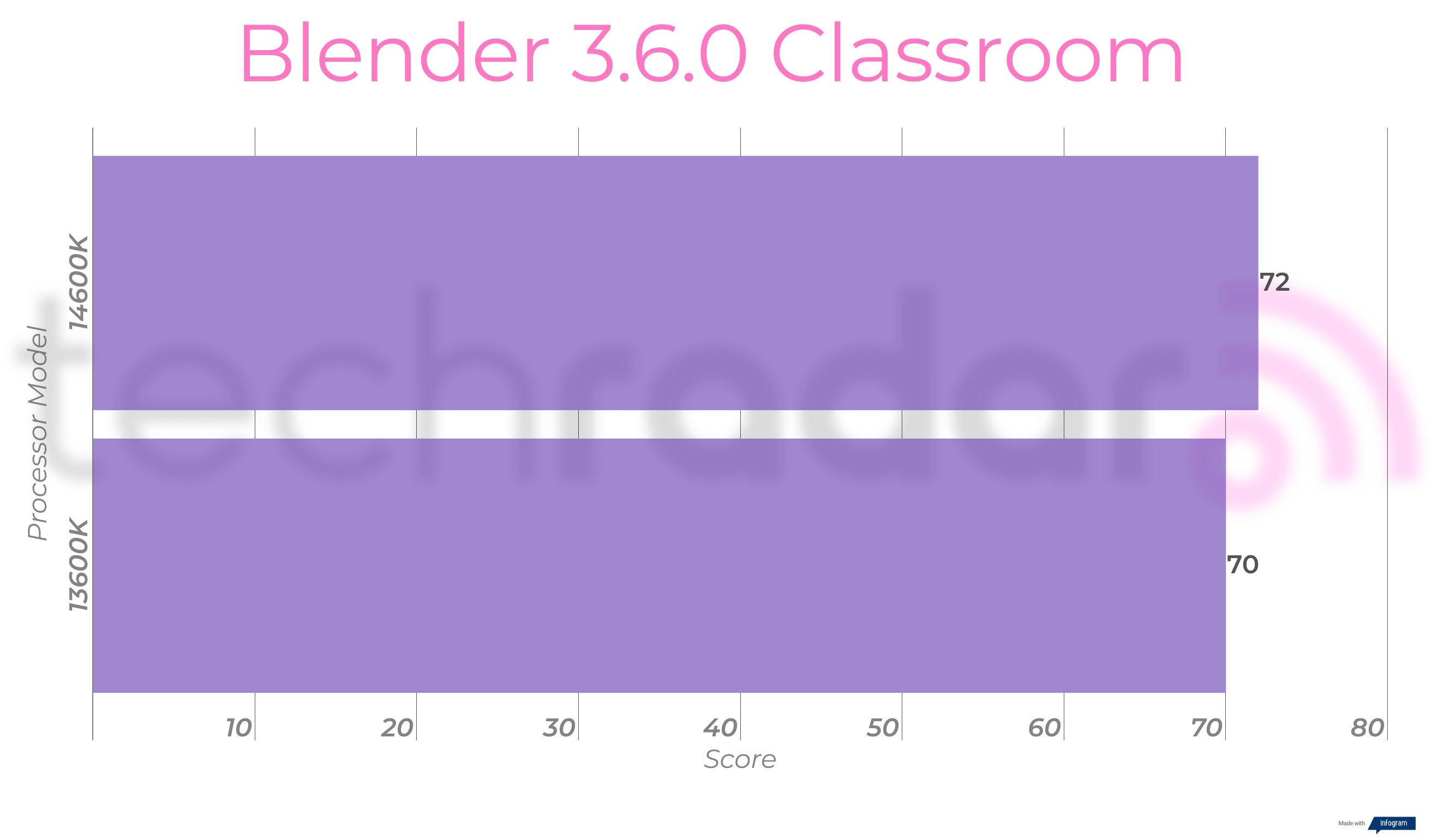

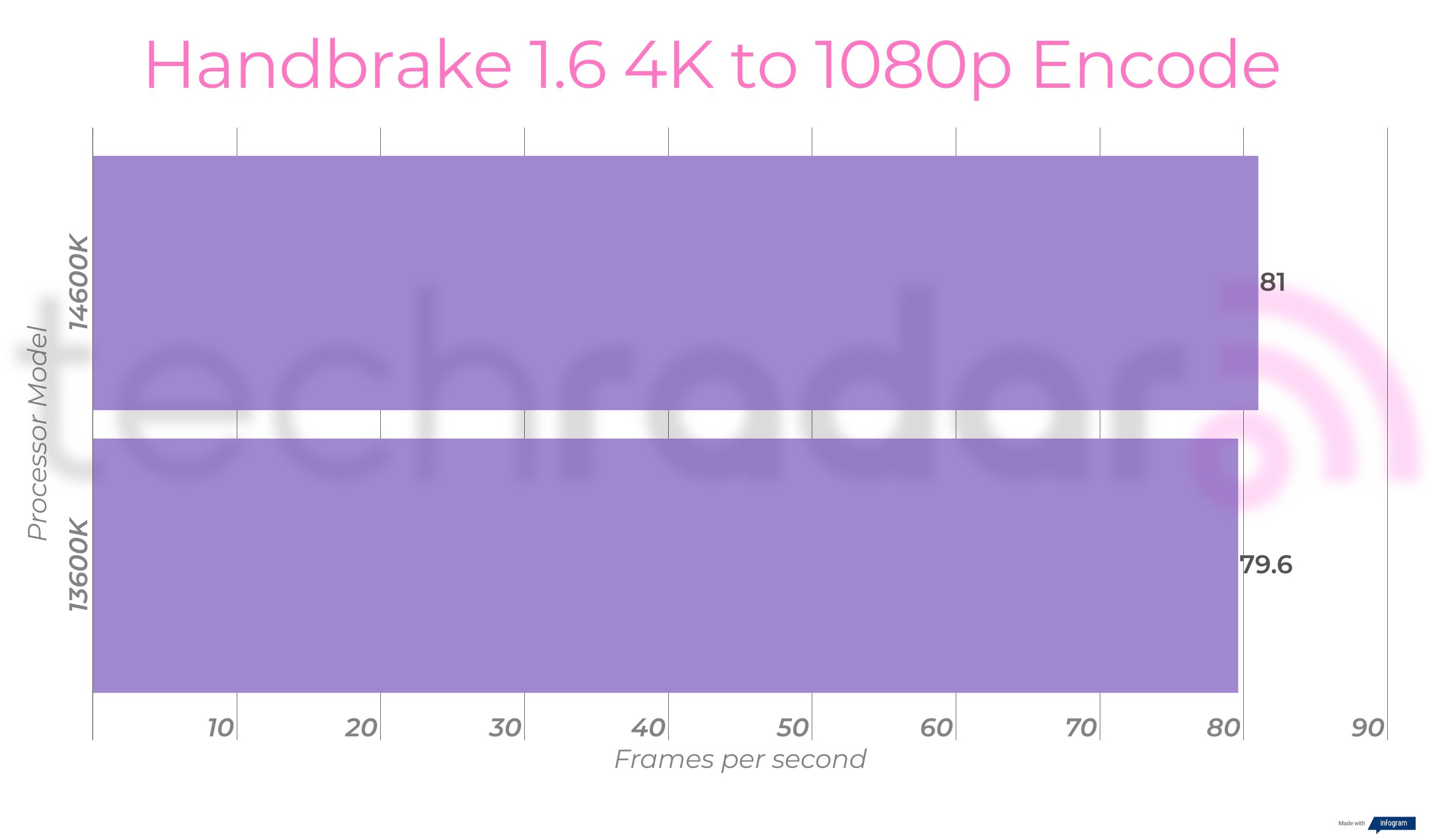
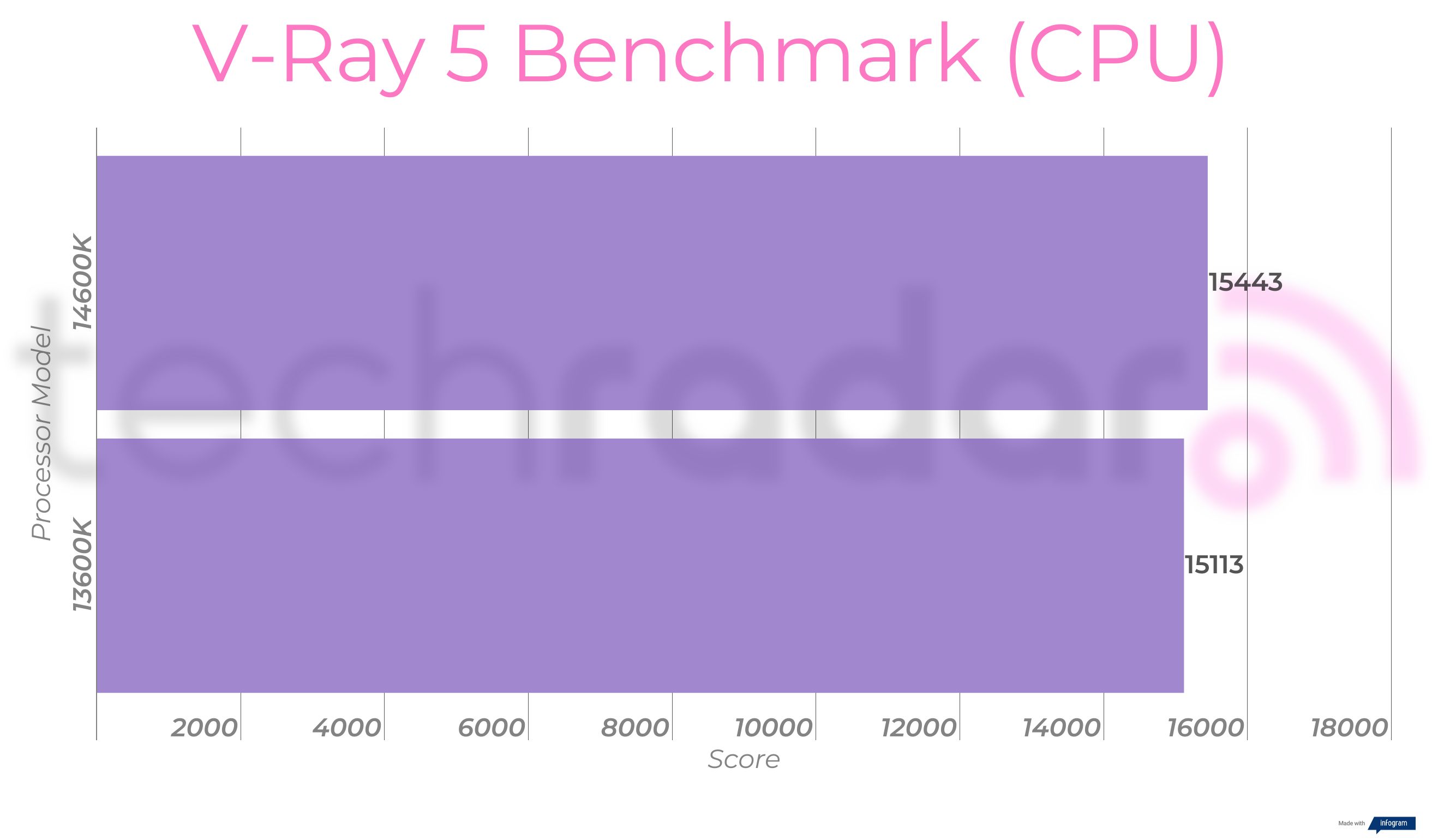
Creative workloads bring the two even tighter together, with the Core i5-14600K managing a 2.4% better performance overall than the 13600K. In fairness, neither of these chips is really great for creative workloads beyond basic photo editing and maybe some video editing for TikTok, and either will be just as good at those kinds of tasks as the other.
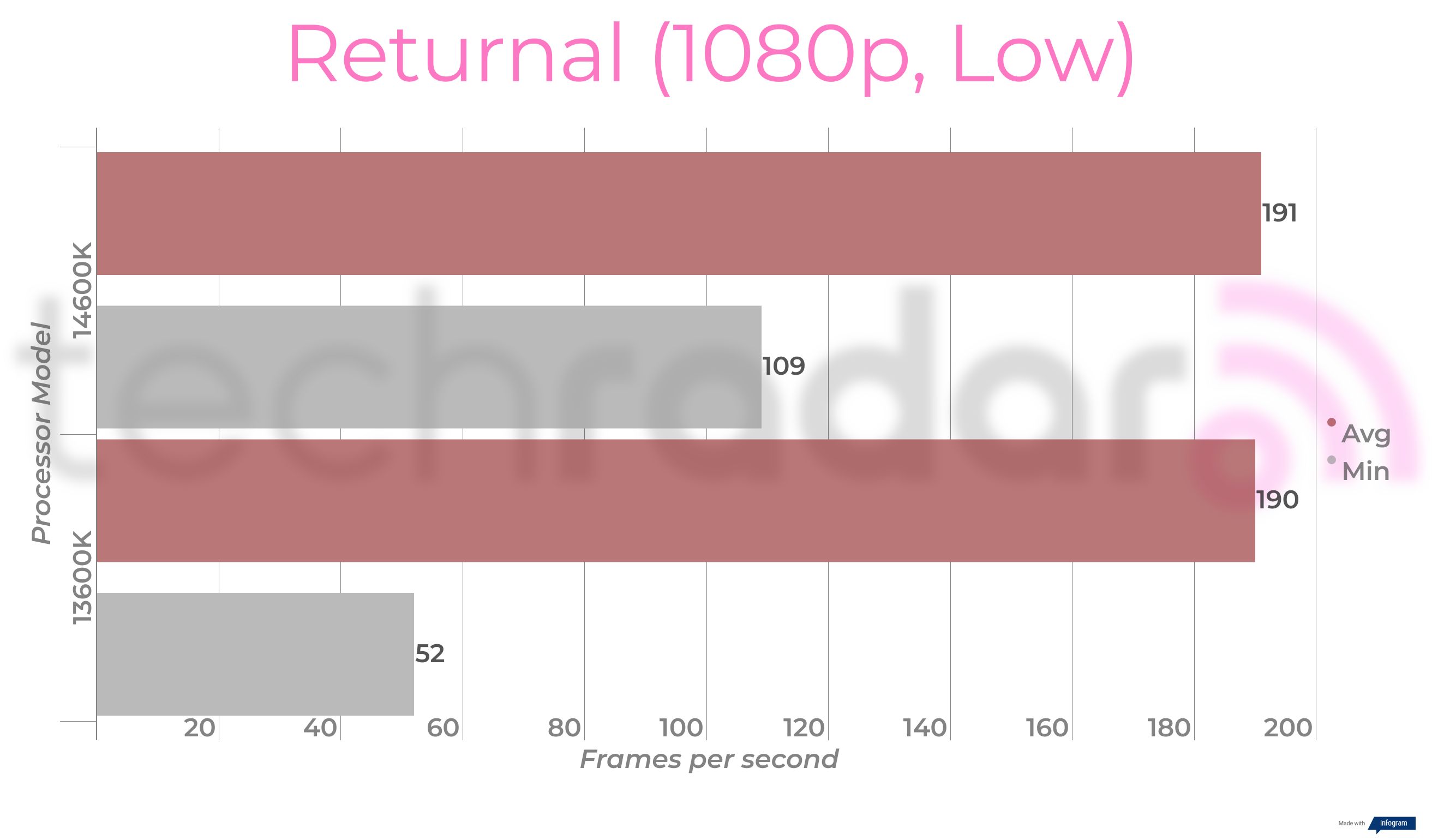

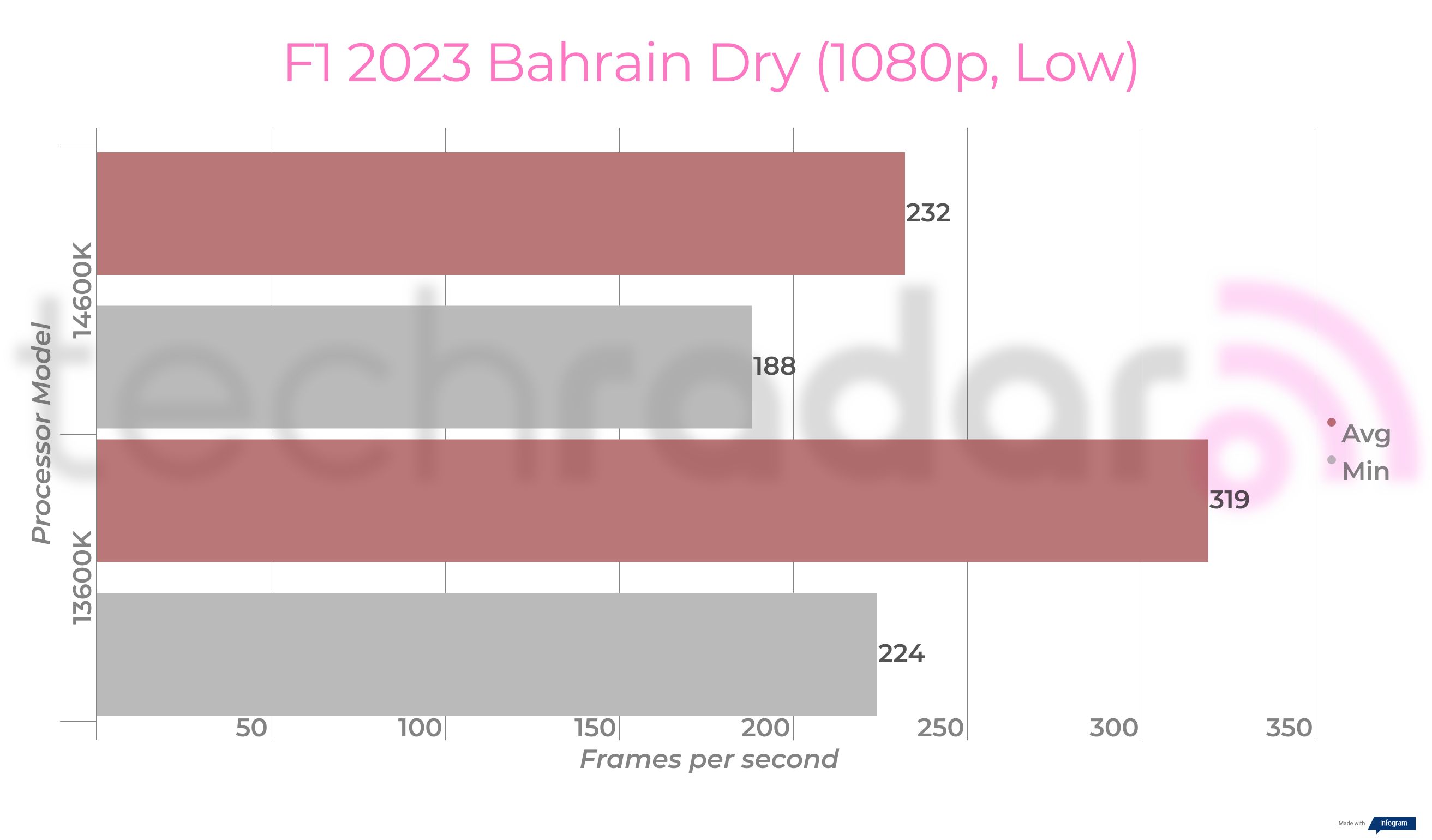
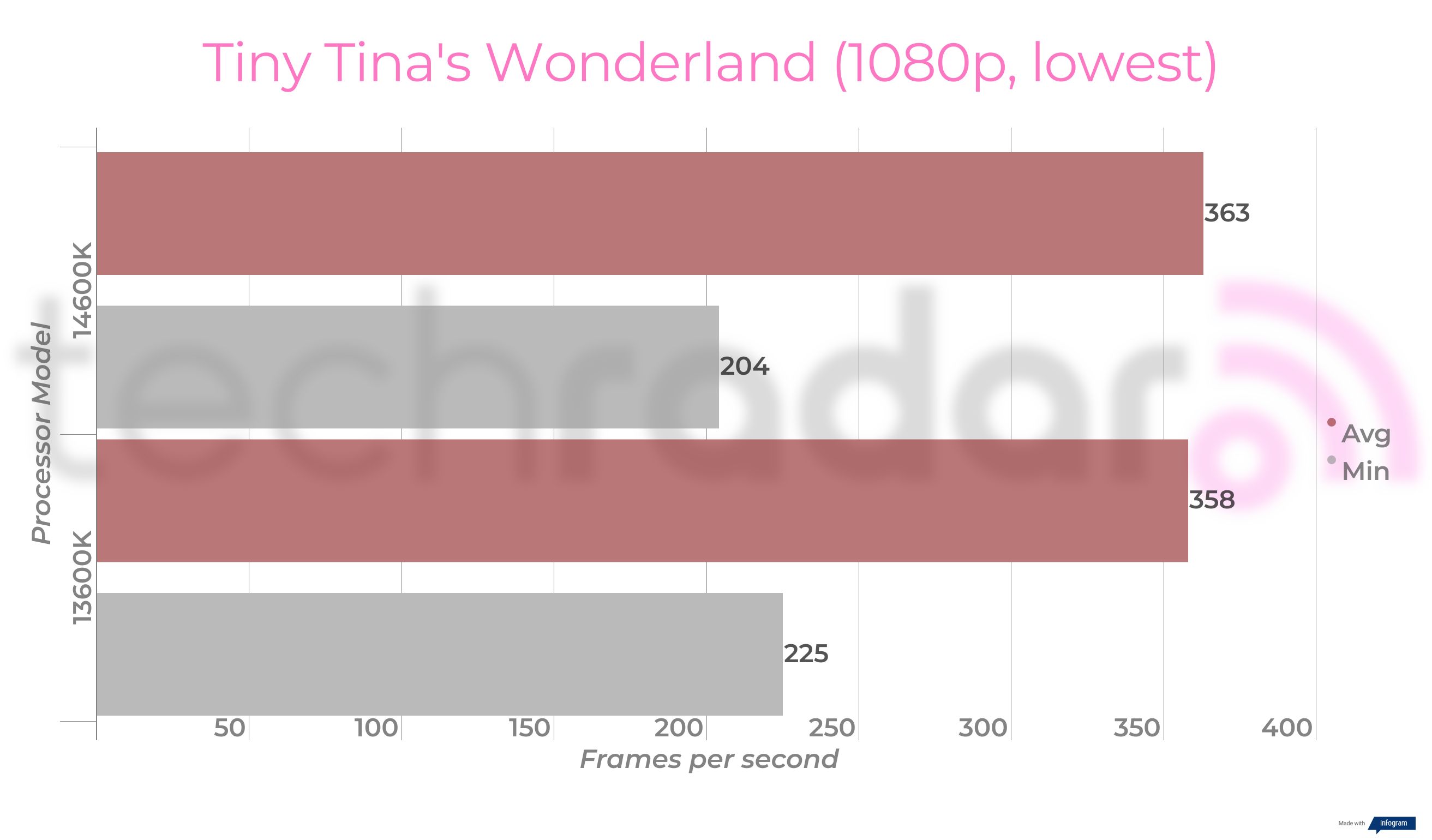
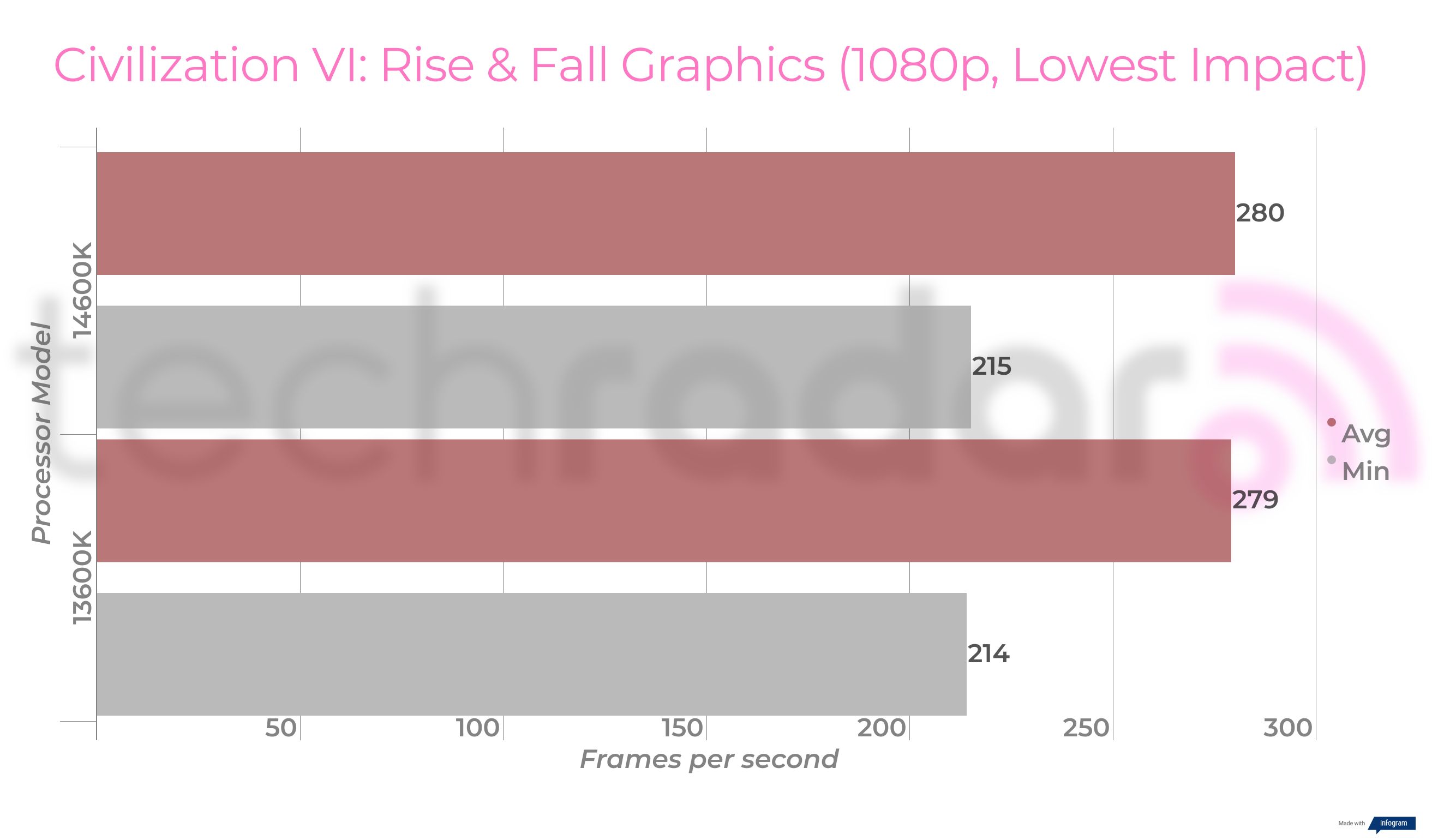
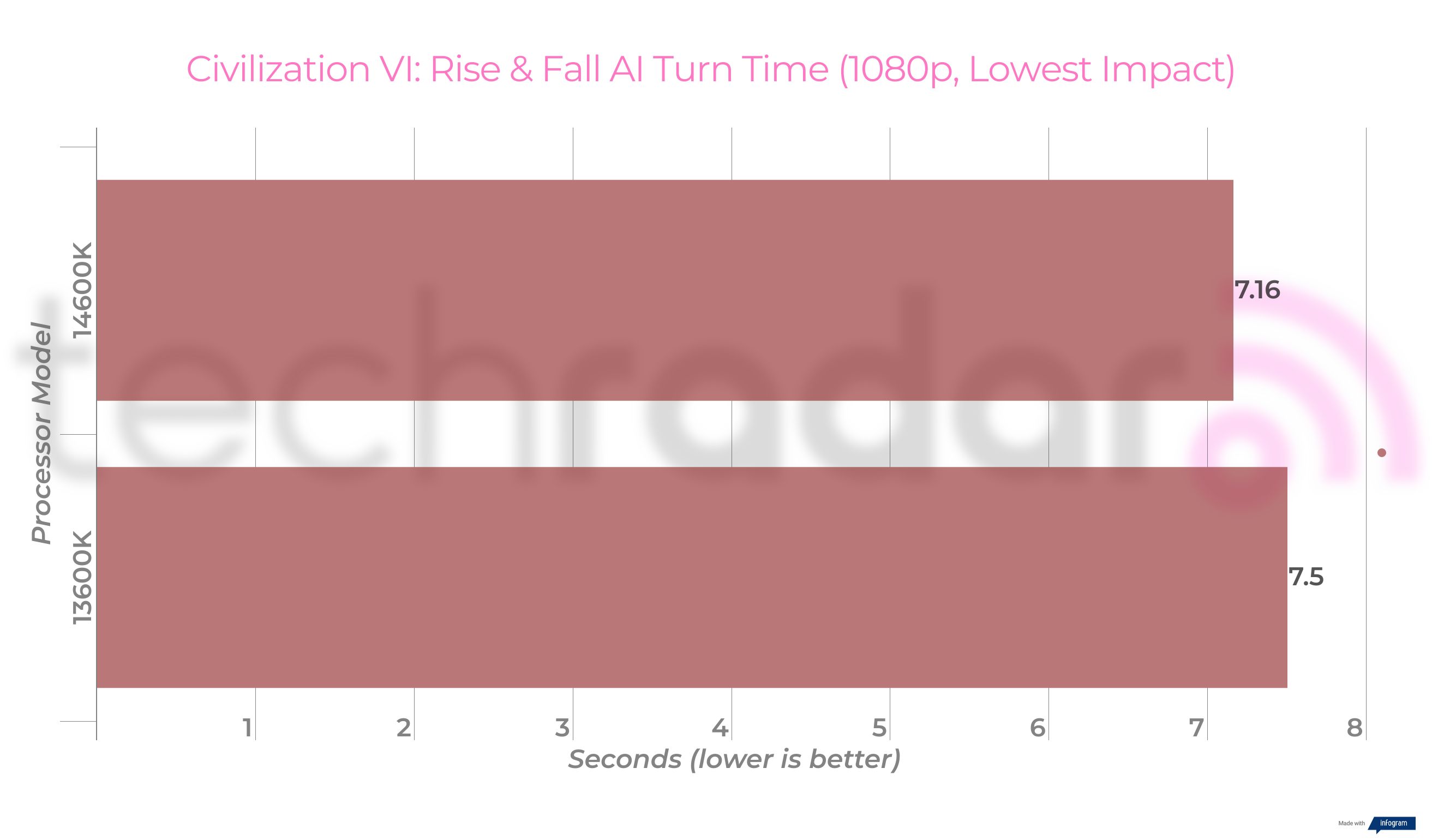
For gaming, the difference between the two narrows even further, with the Core i5-14600K averaging about 254 fps at 1080p on the lowest settings, on average, next to the Core i5-13600K's 249 fps.
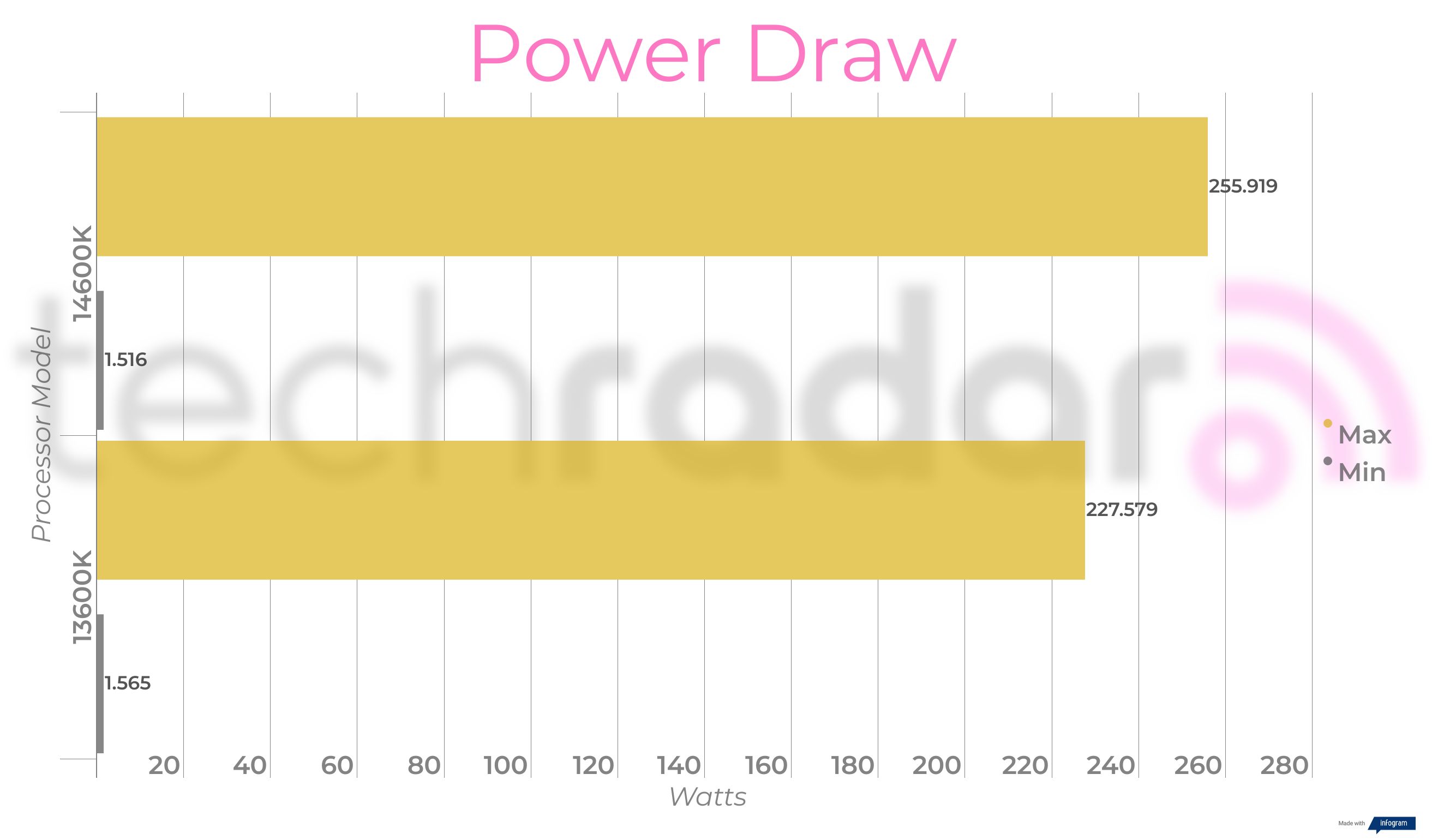
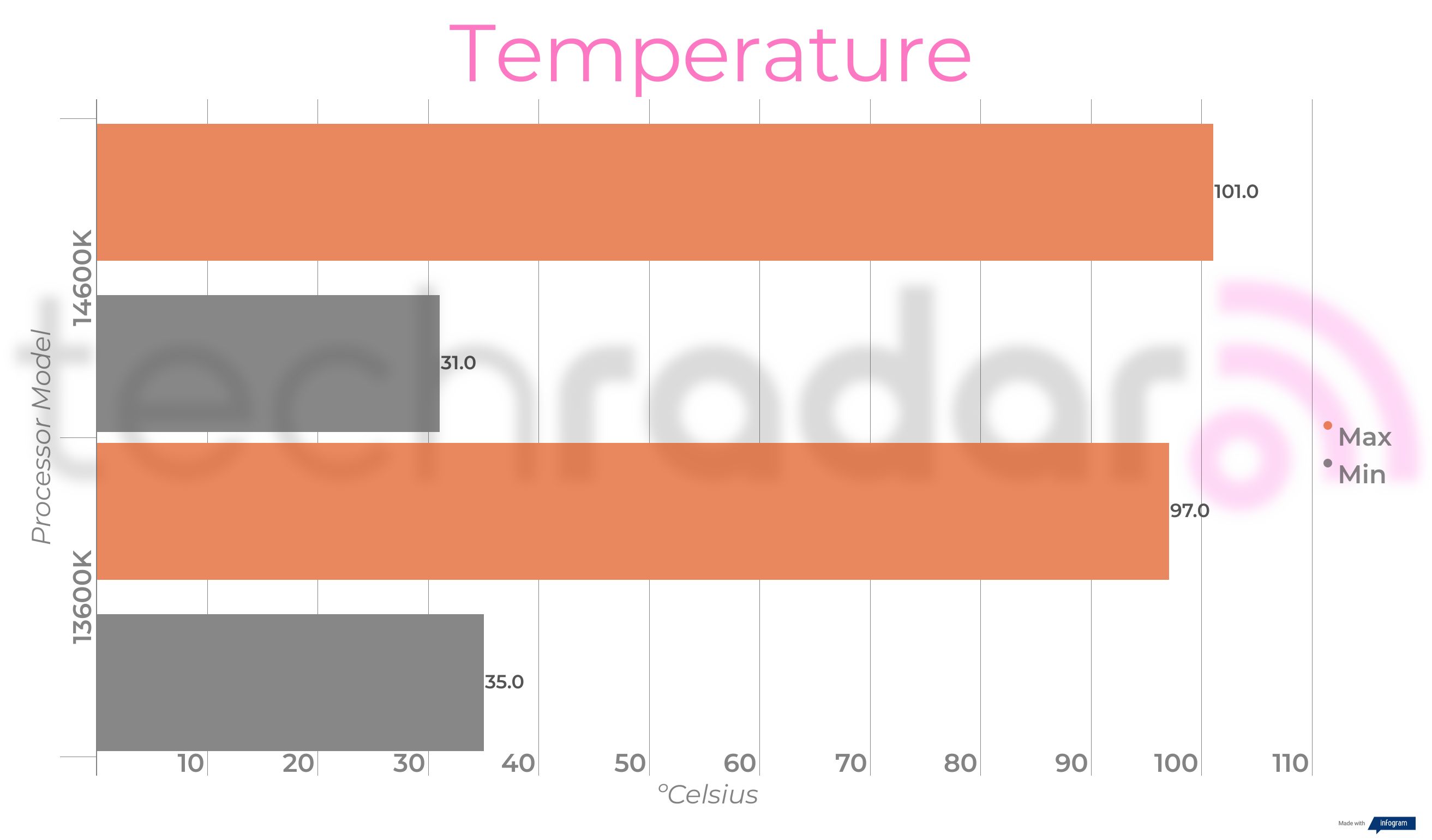
One of the stranger things about this chip is its much higher power draw. Considering that it doesn't have any extra cores to power and the increased clock speeds aren't that much higher than the 13600K's, the 14600K shouldn't be drawing nearly 13% more power (255.919W to the 13600K's 227.579W), but under heavy load, that's what it maxed out at during testing.
This also translated into much more heat. The last few generations of Intel chips have all had heat management challenges, but this is the first time I've seen an i5 hit 101ºC outside of those times I forgot to plug in the AIO cooler's radiator fans to the motherboard and went to town on benchmarks (not recommended).
No, this i5 was being cooled by an MSI MAG Coreliquid E360, which should be more than enough to keep an i5 under 99ºC, but it definitely wasn't, so heat management will need to be a priority when using the 14th-gen i5.
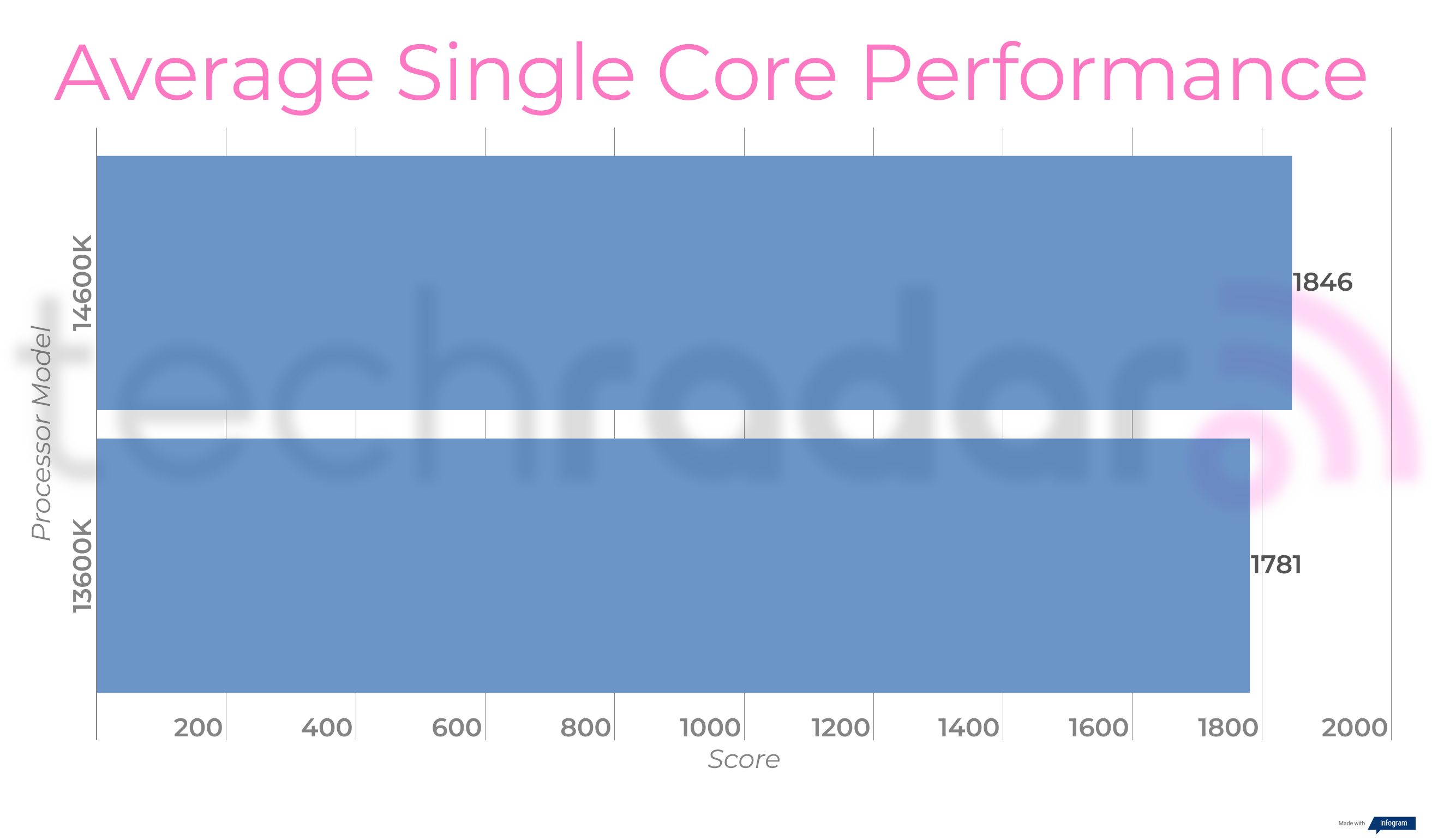
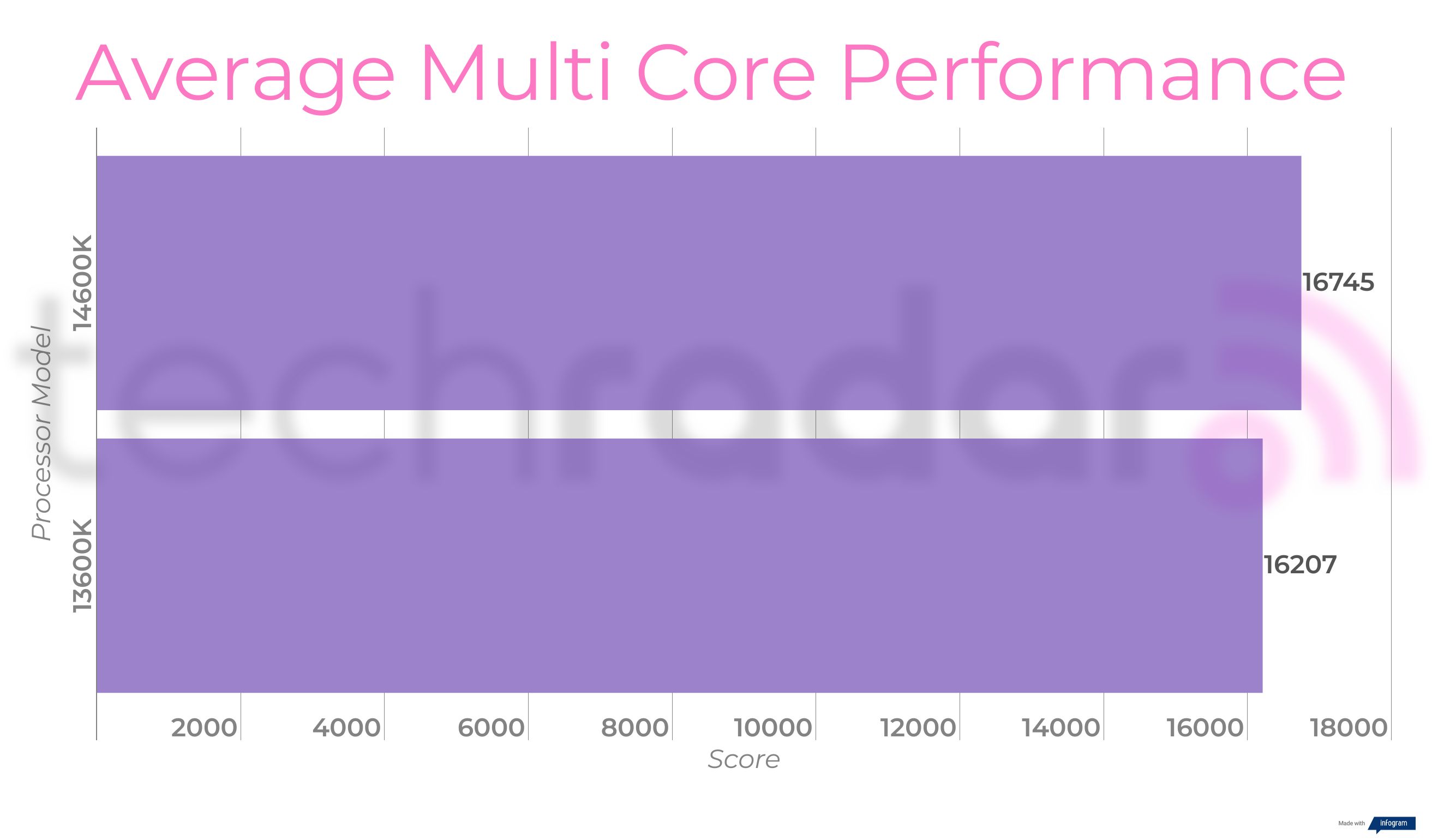
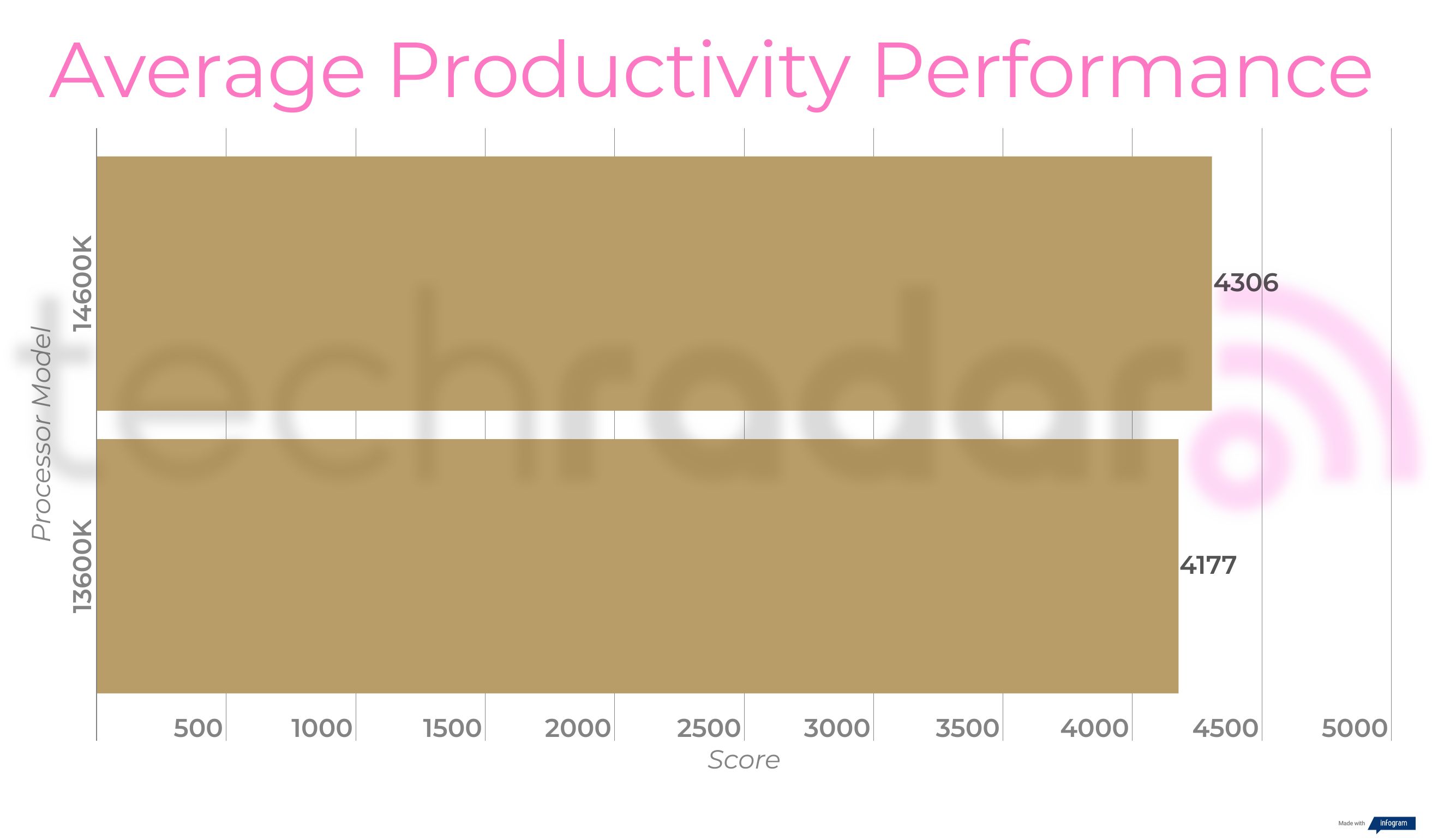
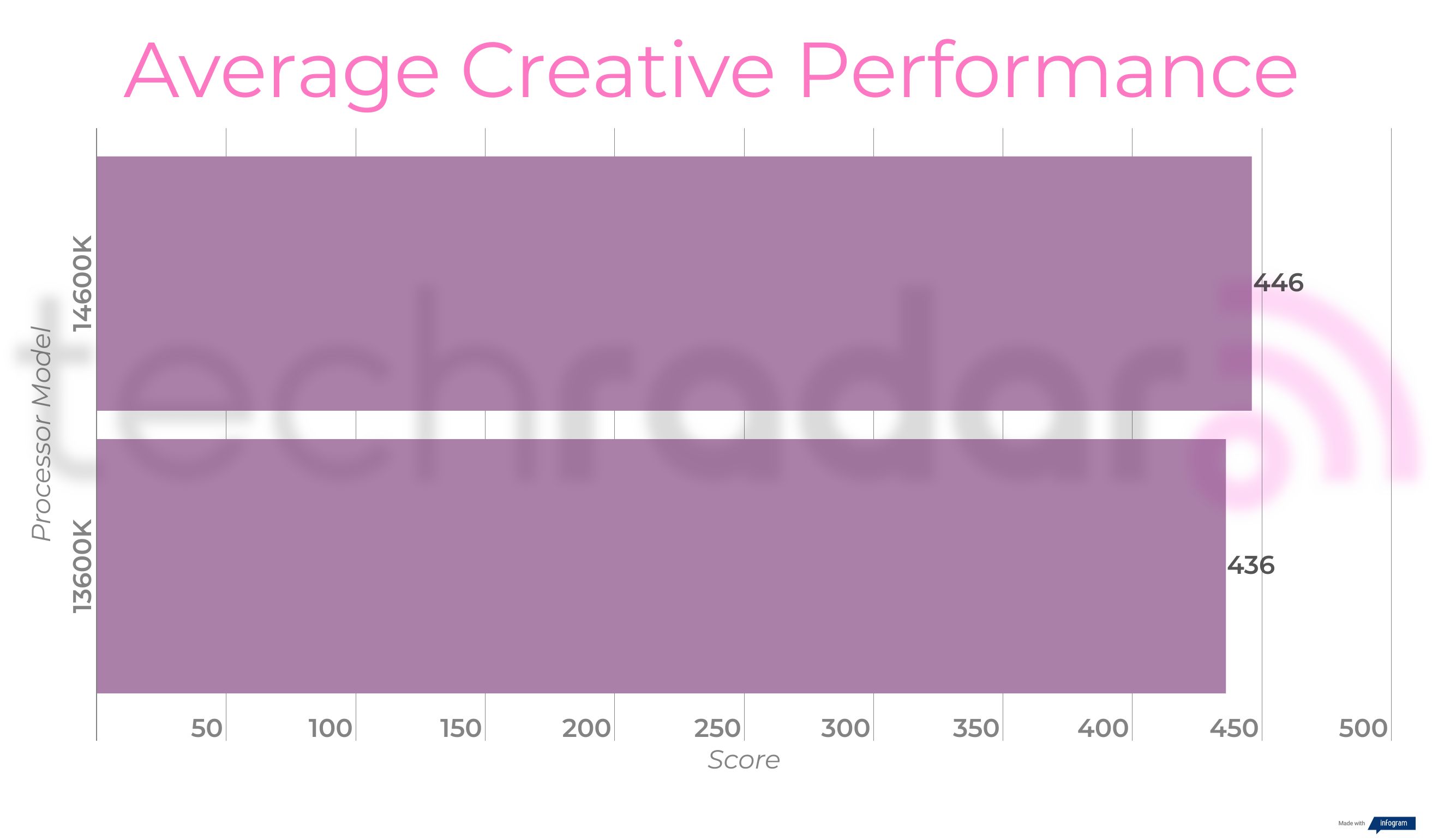
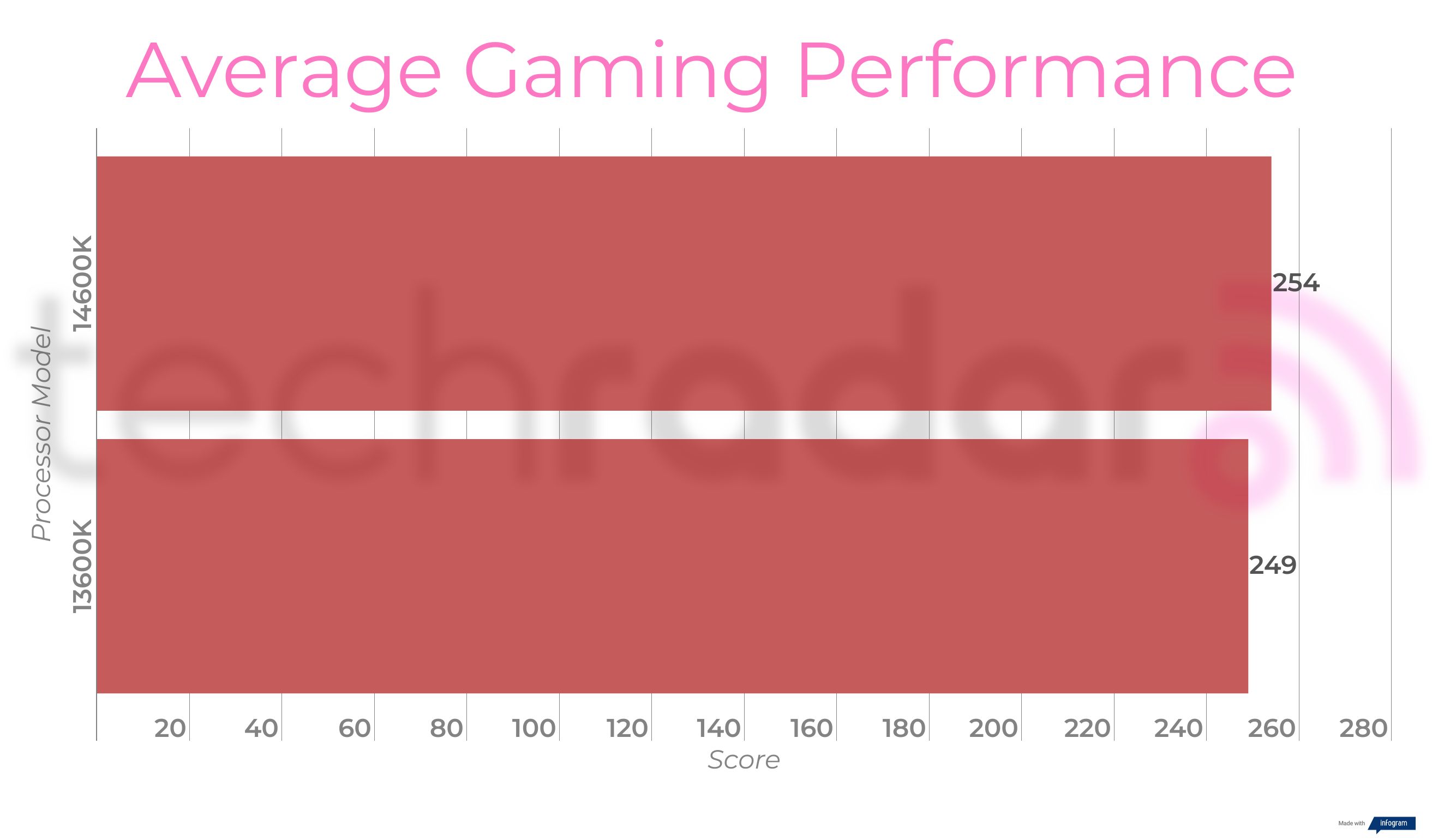
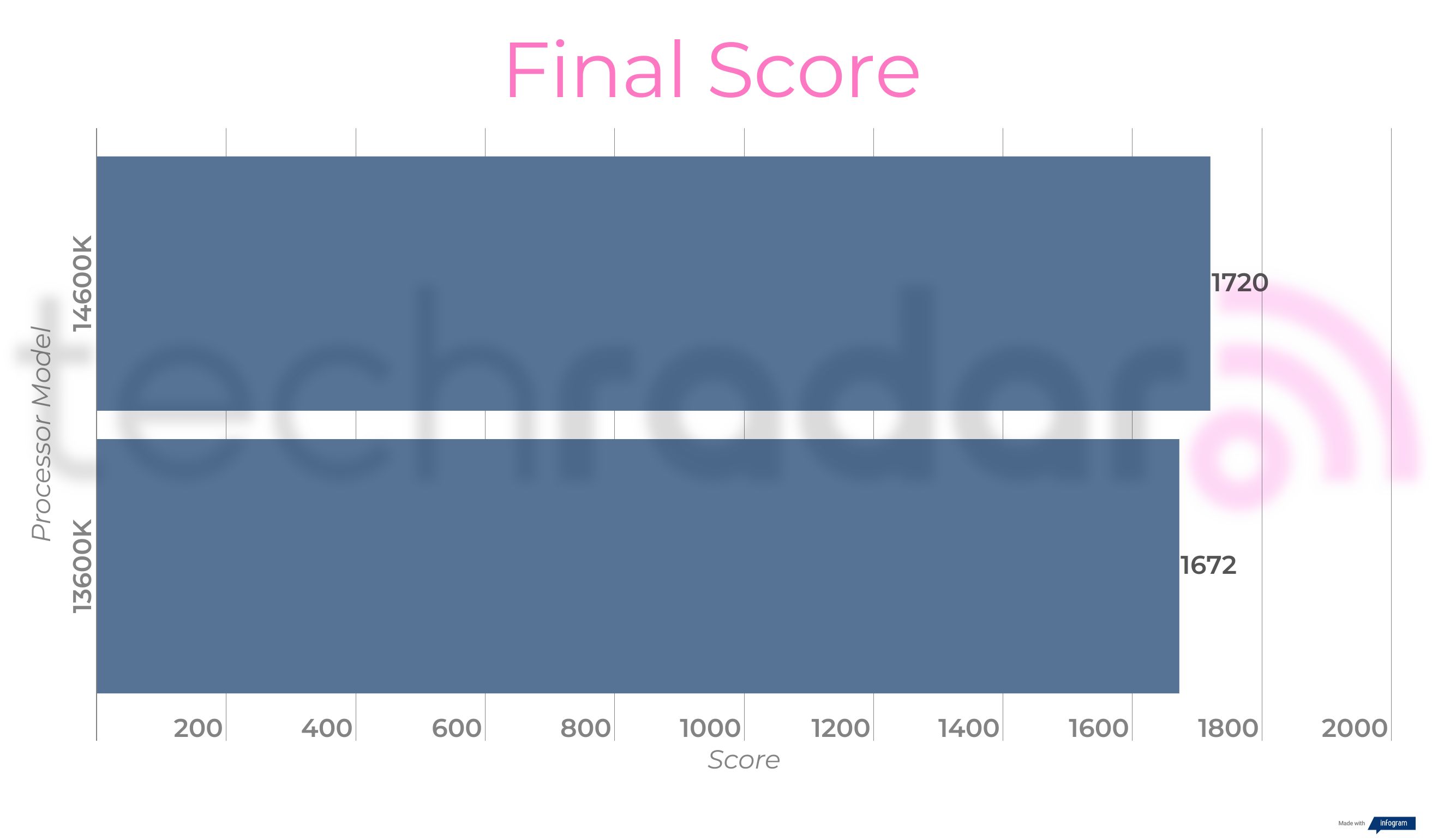
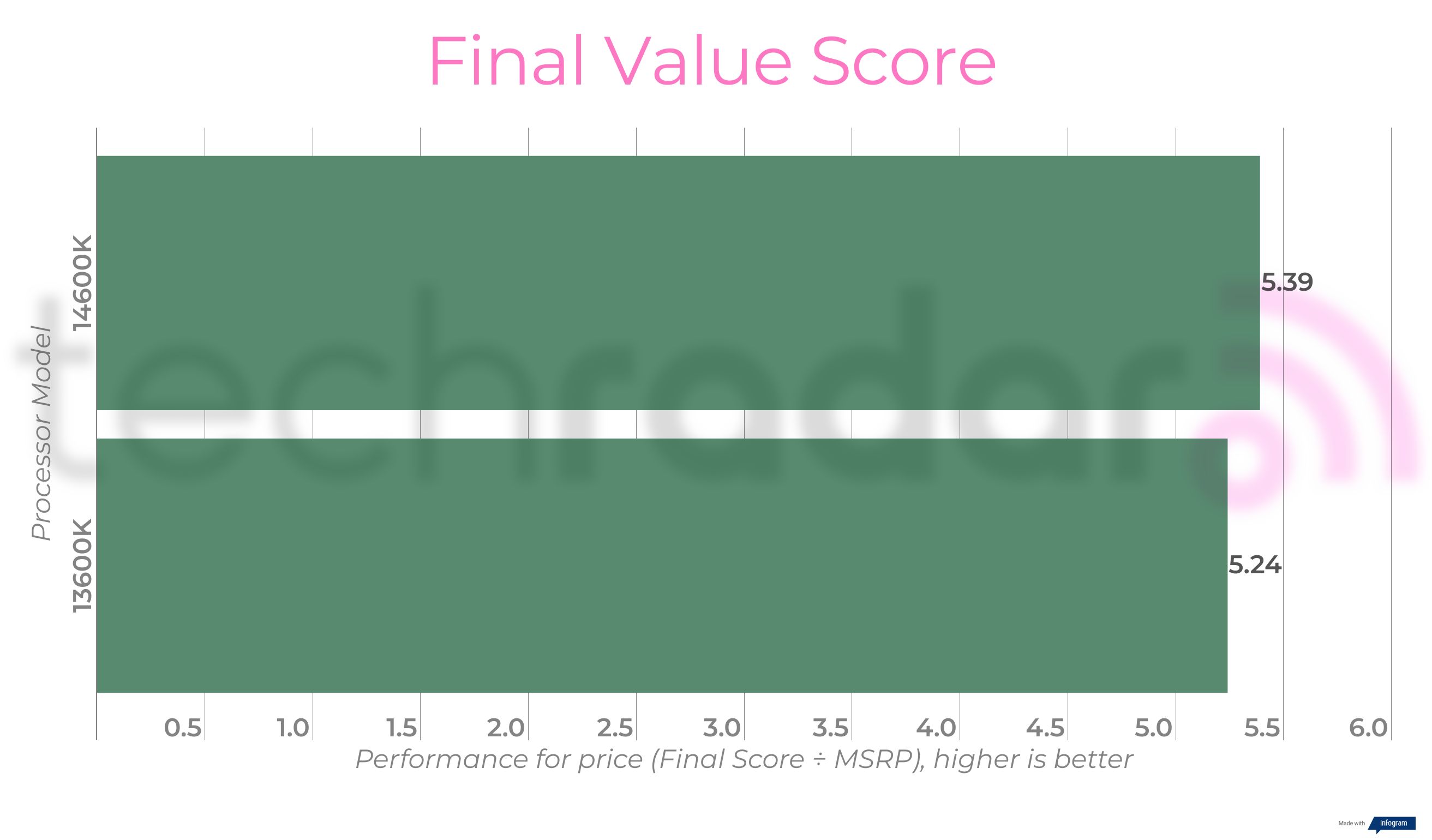
Overall, then, the Core i5-14600K comes in with about 3% better performance than the Core i5-13600K, which even for a Refresh chip isn't a lot at all. It technically wins on points, but I'm calling it a tie since anyone not using an open-air test bench with one of the best CPU coolers around is likely going to start seeing the 14600K throttling earlier than I experienced it, which will likely erase that 3% performance gain in reality.
- Winner: Tie
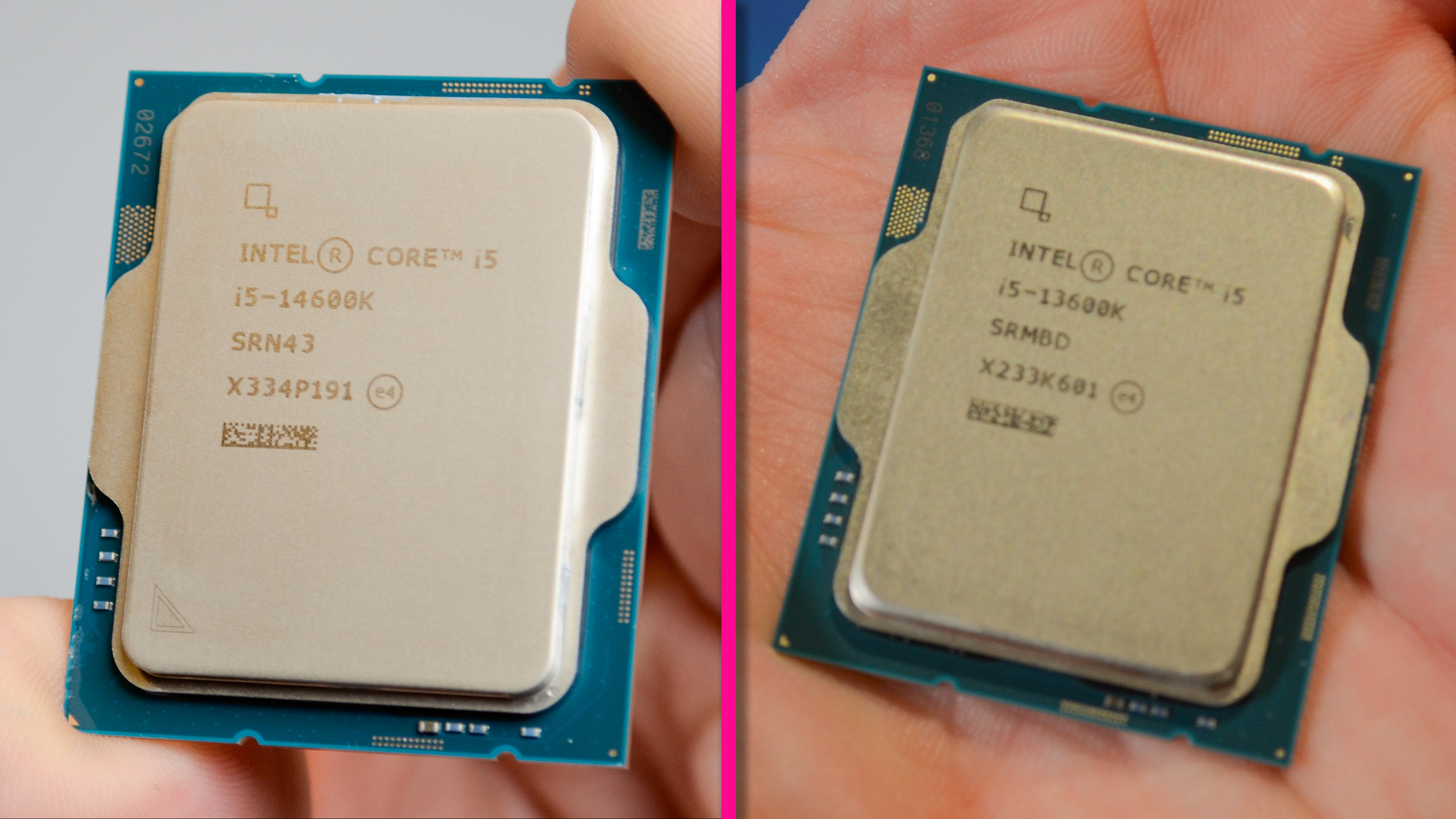
14600K vs 13600K: Final verdict
So, if you're in the market for a new mainstream chip for a general-use build, the Core i5-14600K technically offers better performance, but that performance could be throttled in the end because of the extra heat that needs to be mitigated. Combine this with the near certainty that the Core i5-14600K release is going start driving down the price of the Core i5-13600K, making the Core i5-13600K an even better value than it already was, and the picture gets pretty muddy.
If you're buying a new PC and it comes with a Core i5-14600K, I wouldn't think twice about it and just enjoy the new computer. If you're looking for an upgrade from Alder Lake, then you are not going to get anything out of this chip that you can't get out of the 13600K, and that chip will cost less and be better able to dissipate heat, which will keep it humming along and not throttling.
Strange as it is to say, the Core i5-13600K is the better bet on balance.

John (He/Him) is the Components Editor here at TechRadar and he is also a programmer, gamer, activist, and Brooklyn College alum currently living in Brooklyn, NY.
Named by the CTA as a CES 2020 Media Trailblazer for his science and technology reporting, John specializes in all areas of computer science, including industry news, hardware reviews, PC gaming, as well as general science writing and the social impact of the tech industry.
You can find him online on Bluesky @johnloeffler.bsky.social